|
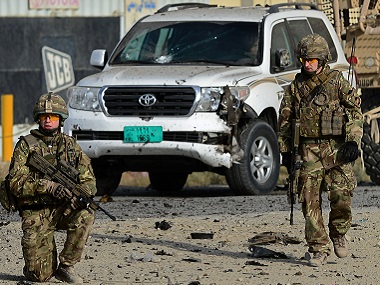 New Zealand PM John Key embroiled in ponytail-pull furore New Zealand PM John Key embroiled in ponytail-pull furore
22 April 2015
New Zealand's leader seems to have gone from premier to playground bully.
Prime Minister John Key has apologized to a waitress at his local cafe for repeatedly tugging on her ponytail, after the woman complained about his behavior in a blog post.
The post, published on New Zealand political website The Daily Blog, says that the odd behavior began during last year's election season.
It was "hardly an acceptable form of greeting," the post's anonymous author, who apparently works as a waitress at a cafe named Rosie, points out.
She wrote that while she didn't directly make her objections clear verbally, her body language "screamed 'I don't like that.'"
"As he approached me, he thought it would be fitting to raise his hands high and make scary, suspense sound effects, like the music from the movie 'Jaws'," the woman wrote.
"As he towered overhead I slunk down, cringing, whilst (Key's wife) Bronagh told him to 'Leave the poor girl alone.'"
Frequent transgressions
The behavior carried on for a number of months and on several occasions, the post states.
Eventually the cafe's manager made it clear to Key that his actions were unwelcome.
Key, who regularly visits the Auckland cafe with his wife, told reporters that his behavior was in the context of "a bit of banter," but said that he had apologized when it was clear she had taken offense.
The blog post says that the prime minister offered the offended waitress two bottles of his own JK 2012 Pinot Noir wine by way of apology.
"We have lots of fun and games there, there's always lots of practical jokes and things. It's a very warm and friendly relationship," he told reporters in Los Angeles en route to ANZAC day commemorations in Gallipoli, Turkey.
"But if you look at it now, no. When I realized she took offense by that I just sort of immediately went back, gave her some wine, apologized and said I was terribly sorry."
Criticism of Key
Politicians and public figures also rounded on Key, with Green MP Metiria Turei saying that the prime minister should be held to the same standards of behavior as the rest of the electorate.
"A lot of New Zealanders know what it's like to feel as if you're not taken seriously in a job. As politicians, our job is to make people feel safe at work, not bullied," New Zealand media reported her as saying.
"It's a sign of how out of touch John Key has become when he can't even monitor how inappropriate his personal behavior is, and when people are not comfortable with how he is behaving."
Jackie Blue, head of the Equal Employment Opportunities Commission, echoed the sentiment.
"It's never OK to touch someone without their permission," CNN affiliate TVNZ reported her as saying. "There are no exceptions."
The National Council of Women of New Zealand, while accepting that Key was joking and did not mean to offend, criticized the premier.
"The fact that our Prime Minister has joined the list of people outed for sexism highlights how much sexism is a part of our culture. And it starts at the top," the organization's chief executive Sue McCabe wrote in an open letter.
"Up and down this country, day after day, people are touched without giving their consent. At one end of the scale, it is an unwelcome pull on a ponytail. At the other end, it's our shocking levels of violence against women."
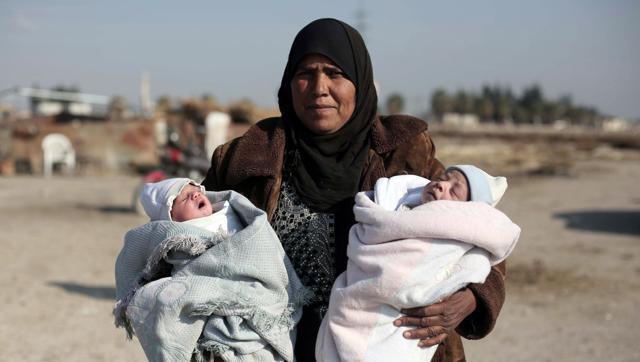 Abe’s omissions in Jakarta were ‘unwise’ step backward, historian says Abe’s omissions in Jakarta were ‘unwise’ step backward, historian says
22 April 2015
JAKARTA – A speech by Prime Minister Shinzo Abe on Wednesday omitted key wording previous Japanese leaders have used in referring to Japan’s actions before and during World War II, fueling speculation he will deliver a watered-down statement in August to mark 70 years since the war’s end.
As the war remains sensitive for nations such as China and South Korea — both of which suffered from Japan’s aggression and colonial rule — any weakening of language in the upcoming statement appears certain to spark renewed criticism of Tokyo and make reconciliation with the neighbors increasingly difficult, analysts say.
Abe’s address to Asian and African leaders gathered in Jakarta on Wednesday was seen as a prelude to the statement planned for August. He expressed “deep remorse” over the war but did not offer a “heartfelt apology” to the people of Asian nations affected by Japan’s “colonial rule and aggression.”
These phrases appear in a landmark statement Prime Minister Tomiichi Murayama issued on Aug. 15, 1995, to mark the 50th anniversary of the war’s end and another by Prime Minister Junichiro Koizumi on Aug. 15, 2005.
“It was one step back in terms of reconciliation with Japan’s neighbors. A very unwise policy choice,” said Sven Saaler, an associate professor of modern Japanese history at Sophia University in Tokyo.
Abe has said he upholds the Murayama statement — which has been upheld by successive Cabinets — “as a whole” and that he therefore sees no need to repeat exactly the same language in his own 70th anniversary statement.
China and South Korea oppose such a view, saying they want Abe to clearly state those phrases in public.
“Taking a different direction will greatly harm the national interest and the national honor, or the image of Japan, worldwide,” Saaler said, urging Japan to preserve the official position even though individual officials might not agree entirely with the underlying historical interpretation.
Abe has angered Beijing and Seoul by saying the definition of “aggression” has yet to be fixed internationally and that there is no clear evidence showing the Japanese military forcibly took women to frontline brothels. Most of the victims were from the Korean Peninsula, which was under Japanese colonial rule between 1910 and 1945.
“Governments are not historical research societies and should not revise their positions every five or 10 years,” said Saaler, who is German. “I personally think that the prime minister should follow his own advice, when he says that ‘the judgment about history should be left to historians.’ ”
While Saaler stresses the importance of keeping consistency in the official position, other experts recommend that Abe not drop or dilute the so-called “key phrases” of the Murayama and Koizumi statements due to practical considerations.
They suggest that Abe retain all such phrases from the Murayama statement as a way to forestall what many see as an “unproductive” argument about whether certain phrases are included or not included in the new statement.
Citing his recent meetings with American intellectuals, Kiyoyuki Seguchi, research director at the Canon Institute for Global Studies in Tokyo, said many experts in Japan and the United States expect Abe to issue a “future-oriented” statement featuring what Japan will do for Asia and the world based on its contributions to peace, stability and prosperity of the international community over the last 70 years.
“But if (Abe’s) perceptions of history attracted severe criticism from China, South Korea and others, and this was reported extensively by the media, it would run risk of the new statement not receiving the fair evaluation it otherwise might have done,” Seguchi said.
During Abe’s planned address at a joint session of the U.S. Congress on April 29, the next major occasion for him to present his views before delivering the August statement, Seguchi proposed that the prime minister express “remorse over what drove Japan to the war.”
He was referring to inadequate civilian control over the military, government controls on the media, state censorship of thought, study and speech, as well as a lack of transparency about politics and government — practices still evident in many countries, including Japan’s neighbors.
“If Prime Minister Abe expressed remorse over such practices, together with Japan’s determination never to repeat them, it would be a significant message to those countries,” he said.
 Mediterranean capsized migrants' boat's captain charged Mediterranean capsized migrants' boat's captain charged
21 April 2015
The Tunisian captain of a boat that capsized off Libya on Sunday, killing hundreds of migrants, has been charged with reckless multiple homicide, Italian officials say.
He has also been charged along with a member of the crew with favouring illegal immigration.
The two were among 27 survivors who arrived in Sicily late on Monday.
The charges come after the EU set out a package of measures to try to ease the migrant crisis in the Mediterranean.
Search-and-rescue operations will be stepped up, and there will be a campaign to destroy traffickers' boats.
A homicide investigation has been opened into the disaster.
After speaking to the survivors, the UN refugee agency said that about 800 people had died in Sunday's disaster. Earlier accounts had put the death toll at about 700.
"There were a little over 800 people on board, including children aged between 10 and 12," said Carlotta Sami, of the United Nations High Commissioner for Refugees in Italy.
"There were Syrians, about 150 Eritreans, Somalians... They had left Tripoli at about 8am on Saturday."
The survivors stood still on the rescue boat. They looked exhausted. One shook hands with the mayor of Catania and put his hand to his chest in a gesture of thanks.
Francesco Rocca runs the Italian Red Cross: "They are under shock, completely shocked. They repeat their phrases about the fact that they are the only survivors on the tragedy.
"Some of them want to speak, some of them want to stay silent. You can imagine they are under a lot of pressure. It's the first time I see such a high level of shock. It's clear from their eyes."
Two survivors told rescue workers that they had managed to stay afloat by clinging to the bodies of their fellow passengers. Others said that the children on board drowned because they were trapped on the boat's lower two levels.
Mr Salvi said hundreds of passengers had been locked below deck and hundreds more were crammed on to its upper deck.
It is believed the boat capsized when an attempted rescue by a Portuguese merchant ship caused panic. Only 28 people were rescued.
Earlier, EU foreign policy chief Federica Mogherini said the 10-point package set out at talks in Luxembourg was a "strong reaction from the EU to the tragedies" and "shows a new sense of urgency and political will".
"We are developing a truly European sense of solidarity in fighting human trafficking - finally so."
The measures include an increase in the financial resources of Frontex, which runs the EU's Mediterranean rescue service Triton, and an extension of Triton's operational area.
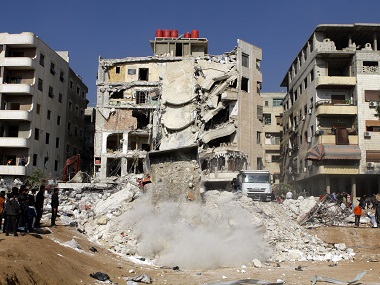 Sri Lanka opposition demands anti-graft chief`s sacking Sri Lanka opposition demands anti-graft chief`s sacking
21 April 2015
Colombo: Sri Lanka`s main opposition demanded on Tuesday that the country`s anti-graft chief be sacked for summoning former president Mahinda Rajapakse to answer bribery allegations, amid renewed uproar in parliament.
Opposition lawmaker Bandula Gunawardane told Parliament the director-general of the Commission to Investigate Allegations of Bribery or Corruption, Dilrukshi Wickramasinghe, should be dismissed for her "arbitrary action."
Wickramasinghe has summoned Rajapakse to appear on Friday following a complaint that he paid a bribe of more than 600 million rupees ($4.6 million) to a lawmaker from the then-opposition to defect ahead of the presidential election in January.
"Today, 113 lawmakers signed a petition asking the speaker to take action to remove Dilrukshi Wickramasinghe," said Gunawardane, who is from Rajapakse`s faction.
New President Maithripala Sirisena has launched a series of corruption investigations against Rajapakse`s inner circle since ousting him at the election after a decade in power.
Rajapakse`s opposition disrupted parliament for a second day over the summons, holding up passage of Sirisena`s promised reforms to roll back the president`s powers, which were strengthened during the former strongman`s rule.
Hundreds of Rajapakse supporters blocked a main road to parliament, demanding investigations against him be dropped.
Speaker Chamal Rajapakse told parliament that investigators would now visit the former president, rather than insisting on him appearing before the commission on Friday to answer questions.
After calling snap elections, Rajapakse was defeated by his former ally, largely due to voter anger over corruption and cronyism claims.
But Rajapakse`s party and its allies still hold a majority in the parliament.
Leader of the house Lakshman Kiriella told reporters the government would press ahead with trying to pass the political reforms, which involve amending the constitution, with a vote likely to be called on Wednesday.
Sirisena has promised to dissolve parliament and call a general election as early as Thursday in a bid to strengthen his numbers in parliament and bolster his mandate for sweeping democratic reforms.
Rajapakse`s former defence secretary brother Gotabhaya, who was widely seen as the main power behind the former president, has also been summoned to the anti-graft panel this week, but he has reportedly asked for more time to prepare.
A court has already slapped a travel ban on Gotabhaya while an arrest warrant has been issued for another brother, former economic development minister Basil, who fled the island soon after the election defeat.
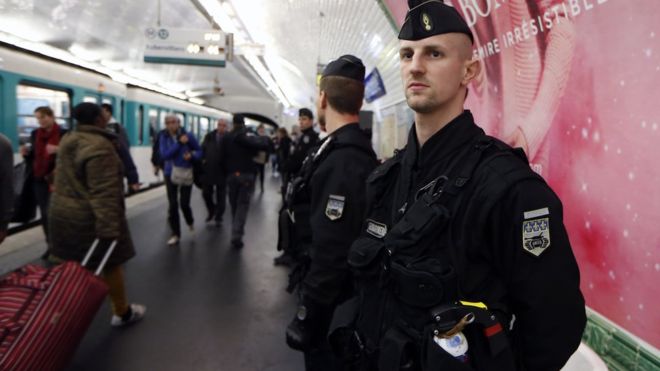 Millionaire businessman Juha Sipila wins Finland's election Millionaire businessman Juha Sipila wins Finland's election
20 April 2015
Helsinki: A millionaire former telecoms executive touted as a technocrat capable of rescuing Finland from an economic slump won Sunday's parliamentary election, but he will likely need coalition support from a second-placed Eurosceptic party critical of any more Greek bailouts.
Opposition Centre Party leader Juha Sipila, who backs a wage freeze and spending cuts to regain Finland's competitiveness, beat pro-European Union and pro-NATO Prime Minister Alexander Stubb after four years of policy stagnation and a bickering coalition.
"Three years ago, we were seen as a sunset movement, but not any more," Mr Sipila said in a speech to his cheering party members. "Finland is in a very difficult situation. We need exceptional degrees of co-operation so that we can overcome the difficulties."
He may depend on the Eurosceptic Finns Party, formerly known as the True Finns, to form a government. If so, the resulting coalition could increase Finland's hardline stance over bailouts in the euro zone just as the battle for Greece's future in the bloc nears a climax.
Based on 99.8 per cent of votes, state broadcaster YLE forecast that Mr Sipila's party won 49 seats in the 200-member Parliament, while the Finns won 38 seats. Mr Stubb's centre-right National Coalition scored 37 seats and the centre-left Social Democrats 34 seats.
The anti-immigration Finns Party's success echoes a Nordic-wide growth in populist parties amid unease over the policies of traditional parties, especially on immigration.
Some mainstream parties refused to deal with rightists, as in Sweden where the populist Sweden Democrats came third in last year's election.
However, Mr Sipila said he was open to including the Finns Party in a coalition, even though it could complicate ties with Europe.
The Finns Party opposes bailouts and wants to kick Greece out of the euro zone. Any third bailout for Greece may face obstacles in the Finnish Parliament.
"If the Finns go to government, I believe Finland's policy towards Greece will change. It will change for the better, because it can't get any worse," Finns Party leader Timo Soini told reporters.
However, for voters, their concern has been their own economy, mired in three years of recession while shackled by the shrinking of its flagship Nokia, rising labour costs and a diminishing working population.
Standard & Poor's last year cut Finland's rating to AA+, citing growth problems and political indecisiveness. That strikes a contrast with the rest of a largely buoyant Nordics.
An assertive Russia on its 1340-kilometres border not only hit Finland's trade, but sparked debate about NATO membership. Mr Stubb was the only candidate openly pro-NATO.
Weeks of coalition bargaining may lie ahead as Mr Sipila needs two of the three runner-up parties to form a majority coalition. Traditionally, the second-placed party is awarded the finance minister post, although Mr Soini has hinted he wants the foreign minister role.
The Finns Party, with 17.6 per cent of the vote, performed worse than in the 2011 election, when it won 19 per cent. Then it spooked markets but won over voters with criticism of EU financial rescues for euro members during the debt crisis.
Mr Soini then refused to join the pro-bailout government coalition.
The populist leader has said he wants power, and some observers say he has softened his tone over Greece.
Many Finns want to avoid the fate of the past four years of political bickering. The government failed on plans to reform healthcare and local government budgets, and cancelled some spending cuts.
The likely new prime minister has a huge task ahead. The Finnish economy has been hit by weak private consumption and turbulence in neighbouring Russia, a major trading partner.
It is expected to grow just 0.5 per cent in 2015, the Finance Ministry says.
 Hundreds drown off Libya, EU leaders forced to reconsider migrant crisis Hundreds drown off Libya, EU leaders forced to reconsider migrant crisis
20 April 2015
As many as 700 migrants were feared dead on Sunday after their boat capsized in the Mediterranean, raising pressure on Europe to face down anti-immigrant bias and find money for support as turmoil in Libya and the Middle East worsens the crisis. If the death toll is confirmed, it will bring to 1,500 the total number of people who died this year seeking to reach Europe - a swelling exodus that prompted Europe to downsize its seek and rescue border protection program in a bid to deter them. International aid groups strongly criticised the decision.
After news of Sunday's disaster several government leaders called for emergency talks and EU foreign policy chief Federica Mogherini said foreign ministers would discuss the immigration crisis at a meeting in Luxembourg on Monday. European Council President Donald Tusk said he was considering calling a special meeting of EU leaders, a summit that Renzi had called for earlier.
Meanwhile Italian and foreign ships and helicopters worked into the night to find possible survivors. So far 28 people have been rescued and 24 bodies recovered, Italian authorities said. The 20 metre-long vessel sank 70 miles from the Libyan coast, south of the southern Italian island of Lampedusa, as a large merchant ship approached it. A survivor told the United Nations' refugee agency UNHCR that 700 people on board, hopeful the ship would save them, moved to one side, toppling the boat.
Italian Prime Minister Matteo Renzi said details were still "nebulous" and that he couldn't estimate the total death count. French President Francois Hollande said the EU had to do more, telling Canal+ television that rescue and disaster prevention efforts needed "more boats, more over flights and a much more intense battle against people trafficking."
"More EU countries must take responsibility for the refugee situation," said Sweden's Minister for Justice and migration Morgan Johansson. He called for an expansion of the EU's Triton border protection programme, the scheme that recently replaced a broader search and rescue mission run by Italy. The Italian "Mare Nostrum" was cancelled last year because of the cost and because some politicians said it encouraged migrants to depart by raising their hopes of being rescued. "It was an illusion to think that cutting off Mare Nostrum would prevent people from attempting this dangerous voyage," said the German government's representative for migration, refugees and integration, Aydan Ozoguz.
Yet Renzi warned that resolving the crisis was not only a matter of search and rescue at sea. He said a concerted international effort was needed to locate and stop people traffickers, many of whom have flourished during the chaos among warring clans in Libya. "We mustn't leave the migrants at the mercy of criminals who traffic human beings," Renzi told the news conference. "We are asking not to be left alone."
"LOOKING FOR A BETTER LIFE"
Carlotta Sami, a UNHCR spokeswoman, said initial information about the capsized boat came from one of the survivors who spoke English. This survivor "said that at least 700 people, if not more, were on board. The boat capsized because people moved to one side when another vessel that they hoped would rescue them approached," Sami said. She later added that "several sources confirm the death of at least 700 people."
Renzi said Italian and foreign navy and coast guard vessels, patrol boats and merchant ships, as well as helicopters, were involved in the search-and-rescue operation, which was being coordinated by the Italian coast guard in Rome. Maltese Home Affairs Minister Carmelo Abela said the survivors and the corpses were on an Italian naval vessel coming to Malta, from where the survivors would continue on to Italy.
Pope Francis, who has spoken out repeatedly on the migrant crisis, repeated his call for quick and decisive action from the international community. "They are men and women like us, our brothers seeking a better life, starving, persecuted, wounded, exploited, victims of war. They were looking for a better life, they were looking for happiness," he told tens of thousands of people in St. Peter's Square for his Sunday noon address. Aid groups have called for the opening of a "humanitarian corridor" to ensure the safety of the migrants but in Italy there were also calls to stop the boats from leaving and even to destroy them.
The leader of the anti-immigrant Northern League party, Matteo Salvini, called for an immediate naval blockade of the coast of Libya while Daniela Santanche, a prominent member of Silvio Berlusconi's Forza Italia party said Italy's navy must "sink all the boats."
Libya's lawless state, following the toppling of former leader Muammar Gaddafi in 2011, has left criminal gangs of migrant smugglers free to send a stream of boats carrying desperate migrants from Africa and the Middle East Around 20,000 migrants have reached the Italian coast this year, the International Organisation for Migration (IOM) estimates. That is fewer than in the first four months of last year, but the number of deaths has risen almost nine-fold.
Last week, around 400 migrants were reported to have died attempting to reach Italy from Libya when their boat capsized. "A tragedy is unfolding in the Mediterranean, and if the EU and the world continue to close their eyes, it will be judged in the harshest terms as it was judged in the past when it closed its eyes to genocides when the comfortable did nothing," Maltese Prime Minister Joseph Muscat said.
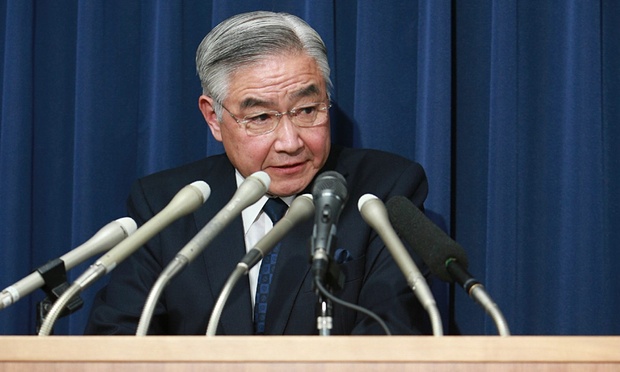 Dozens Killed in Suicide Bombing at Bank in Eastern Afghanistan Dozens Killed in Suicide Bombing at Bank in Eastern Afghanistan
18 April 2015
JALALABAD, Afghanistan — A suicide bomber attacked a crowd of people waiting to collect their pay at a bank here on Saturday, killing 33 and wounding at least 50 in the bloodiest such attack so far this year, officials said. All of the victims were civilians, according to the police.
The blast was one of three separate explosions heard in quick succession in this eastern city around 8 a.m. Saturday, the police said.
Unusually, the Taliban spokesman for eastern Afghanistan, Zabiullah Mujahid, disavowed the bank attack soon after it happened, denying in three different languages on Twitter that the insurgents had been behind it. “We condemn/deny involvement,” Mr. Mujahid wrote.
In 2011, the Taliban claimed responsibility for an even deadlier attack on the same branch of Kabul Bank in Jalalabad, in which seven suicide attackers killed 38 bank customers, also on a payday. Many Afghans collect their salaries directly from banks as a safeguard against the country’s rampant corruption.
Fazel Ahmad Sherzad, the police chief of Nangarhar Province, of which Jalalabad is the capital, put the death toll at 22 and the number of wounded at more than 50. But the head of the provincial health department, Najibullah Kamawal, said that hospitals had already received the bodies of 33 victims, along with more than 100 wounded.
The first of the three blasts in Jalalabad on Saturday morning occurred at a religious shrine and apparently involved a planted bomb, not a suicide attacker; only two people were wounded. Seconds later, according to the police, the suicide bomber at the bank detonated a vest packed with explosives.
A short time later, the police said, they discovered a third bomb in a motorcycle parked in front of a branch of the Central Bank of Afghanistan, and they detonated it under controlled conditions to ensure that no one was hurt.
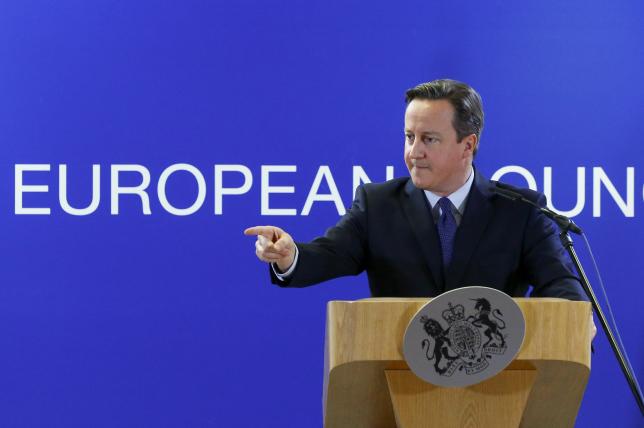 Kremlin Criticizes Arrival Of U.S. Military Trainers In Ukraine Kremlin Criticizes Arrival Of U.S. Military Trainers In Ukraine
18 April 2015
Russia has criticized the arrival of 300 U.S. paratroopers in Ukraine to train troops from the National Guard, saying their presence hints at escalation and could destabilize the situation in the conflict-torn country.
Russian President Vladimir Putin’s spokesman, Dmitry Peskov, told reporters on April 17: "The participation of instructors or specialists from third countries on Ukrainian territory, where the domestic Ukrainian conflict is unresolved...could destabilize the situation."
The Russian Foreign Ministry late on April 17 warned that the planned training was a "first step" to possible delivery of weapons to Ukraine.
It was unclear why Peskov used the term "third countries," since Moscow has consistently described the Ukraine conflict as a civil war and insisted all along that it is not a party to the Ukrainian conflict despite Kyiv and Western governments accusing it of active involvement.
The U.S. Army announced the arrival of the paratroopers in Ukraine on April 16, saying they would train 900 members of a Ukrainian reservist force that was called up in 2014 to bring volunteers and pro-government militia under Kyiv's control.
The training operations are taking place in the western region of Lviv, about 1,000 kilometers from the areas in eastern Ukraine's Donetsk and Luhansk regions where Russian-backed rebels hold territory and are fighting government forces.
U.S. Army Major Jose Mendez, a brigade operations officer, said the U.S. trainers would be "conducting classes on war-fighting functions, as well as training to sustain and increase the professionalism and proficiency of military staffs."
Troops from the same U.S. unit were deployed to Poland, Estonia, Latvia, and Lithuania in 2014 to train forces there and alleviate concerns raised by those countries over Russia’s military intervention in Ukraine.
About 200 of the U.S. paratroopers from the 173rd Airborne Brigade also took part in a September 2014 NATO training exercise called Rapid Trident in western Ukraine along with 1,100 troops from 14 other NATO member and partner countries.
The Kremlin also complained about that NATO training exercise, which had been scheduled before Russia’s illegal annexation of Crimea in March 2014 and before fighting broke out in eastern Ukraine.
The conflict in eastern Ukraine has killed more than 6,000 people during the past year and continues despite a February cease-fire agreement that has decreased fighting.
The Kremlin said on April 17 that diplomatic efforts aimed at resolving Ukraine’s conflict were continuing "at the high level of foreign ministers" from Ukraine, Russia, France, and Germany.
Meanwhile, about 2,200 troops from the United States, Britain, Moldova, and Romania launched training exercises in southeastern Romania on April 16 close to the Ukrainian border in an operation called Wind Spring 15.
In a separate exercise launched this week called Atlantic Resolve, the U.S. Air Force also deployed 12 A-10 Thunderbolt II aircraft in Romania.
Those combat planes, which also are known as Warthogs, are designed with the sole purpose of providing close air support to ground troops that are engaged in battle.
U.S. Air Force General Darryl Roberson told reporters at Campia Turzii Air Base in northwestern Romania on April 16 that Atlantic Resolve is aimed at reassuring eastern European countries concerned about Russia’s military role in Ukraine and its aggression in the region.
Roberson said: "Intimidating actions...have created significant distress among east Europeans and resurrected thoughts of a not too distant past."
 Philippines says South China Sea dispute a global problem Philippines says South China Sea dispute a global problem
17 April 2015
MANILA- Philippine President Benigno Aquino said on Friday the territorial dispute with China in the South China Sea was of concern for the world because global trade will be hit by China's reclamation.
Recent satellite images show China has made rapid progress in building an airstrip suitable for military use in contested territory in the Spratly Islands and may be planning another, moves that have been greeted with concern in the United States and Asia.
IHS Jane's Defence Weekly said March 23 images from Airbus Defence and Space showed work on the runway on reclaimed parts of Fiery Cross Reef in the Spratly archipelago, which China contests with the Philippines, Vietnam, Malaysia, Brunei and Taiwan.
"We keep asserting the problem in the South China Sea is not a regional problem," Aquino told journalists. "This is a problem of the whole world because 40 percent of global trade pass through these waters. Global leaders have already expressed their concern on this problem."
China claims most of the potentially energy-rich South China Sea, through which $5 trillion in ship-borne trade passes every year, and denies accusations its actions in its own territory are provocative.
On Wednesday, G7 foreign ministers issued a statement on maritime security, expressing concern on unilateral actions in the South China Sea, including "large scale reclamation, which change the status quo and increase tensions".
American and Filipino troops will take part in the largest-ever drills in 15 years next week, a key component of America's rebalance to Asia policy.
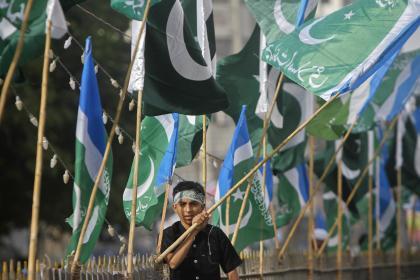 Syria war: 'Chlorine' attack video moves UN to tears Syria war: 'Chlorine' attack video moves UN to tears
17 April 2015
The footage shows the unsuccessful attempts of doctors to revive three children all aged under four.
US ambassador to the UN Samantha Power described the meeting as "very emotional" and said those responsible will be held accountable.
The Syrian government denies it was responsible for the attack in Idlib.
Syrian doctors, confirming what activists reported after the attack on 16 March, told the UN Security Council that helicopters were heard flying above the village of Sarmin.
There was then a thud and an overpowering smell of bleach before dozens of people began arriving at the local hospital with breathing difficulties.
The video showed the desperate attempts by doctors to revive the three children, aged one, two and three, their grandmother and parents.
Speaking to the BBC, Zaher Sahloul, President of the Syrian American Medical Society, who attended the meeting, said UN delegates were affected by what they saw.
"Some of them were crying. Clearly they were affected by what they have seen in the videos and what they have heard, many of them spoke outside the diplomatic language and many of them have said that this is outrageous and the perpetrators should be brought to justice.
"Many of them suggested that the OPCW [Organization for the Prohibition of Chemical Weapons], should have a prompt and serious investigation."
Samantha Power, who also told reporters "if there was a dry eye in the room I didn't see it", said such testimony was being collected so that those responsible could be held to account.
"The long arm of justice is taking more time than any of us would wish right now, but this documentary record will be used at some point in a court of law," she said.
The attack on Sarmin came just days after the UN Security Council approved a resolution that condemned the use of toxic chemicals such as chlorine in Syria, and threatened military action in case of further violations.
The US and other council members have long blamed the government of Bashar al-Assad of carrying out chemical weapons attacks.
They say that the Syrian military is the only party to the conflict that have helicopters, which were heard in Sarmin and in other chemical attacks.
But Russia, an ally of Syria and a veto-wielding member of the UN Security Council, has always maintained there is insufficient evidence to lay the blame solely with Damascus.
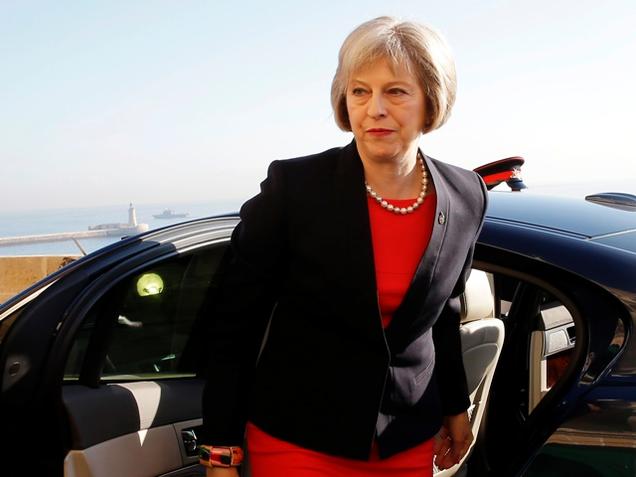 Netanyahu says Iran trying to conquer Middle East Netanyahu says Iran trying to conquer Middle East
16 April 2015
Israeli Prime Minister Benjamin Netanyahu likened Iran to the Nazis Wednesday and warned the country must be prevented from obtaining nuclear weapons.
As Israel marked its Holocaust memorial day, Netanyahu linked the Nazi genocide of 6 million Jews in World War II to Iran’s contested nuclear program and some of the Islamic Republic’s leaders repeated references to the destruction of Israel.
"As the Nazis strived to trample civilization and replace it with a 'master race' while destroying the Jewish people, so is Iran striving to take over the region and expand further with a declared goal of destroying the Jewish state," Netanyahu said.
Israel continuously views Iran as a threat to its existence noting Tehran’s support of Israel’s enemies such as Hezbollah and Palestinian groups Hamas and Islamic Jihad.
"Instead of demanding Iran significantly dismantle its nuclear capabilities and conditioning lifting sanctions on it ending its aggressions, the world powers are retreating, leaving Iran with nuclear capabilities and even allowing it to expand them later on regardless to its actions in the Middle East and around the world," Netanyahu said.
Netanyahu has voiced his disapproval of the world powers’ framework deal with Iran to limit its nuclear program in exchange for a reduction in economic sanctions. Iran and the world powers reached a framework agreement on the deal earlier in April, while a final deal is to be finalized by June 30.
Six million Jews were killed by German Nazis and their collaborators in the Holocaust, wiping out a third of world Jewry. Today, fewer than 200,000 elderly survivors remain in Israel, which was created just three years after the end of World War II.
The annual memorial day is one of the most solemn on Israel's calendar. Restaurants, cafes and places of entertainment are shut down, and radio and TV programming are dedicated almost exclusively to documentaries about the Holocaust, interviews with survivors and somber music.
Thursday morning, Israel will pause as sirens wail for two minutes. Pedestrians stop in their tracks and buses halt on the streets while drivers and passengers stand with their heads bowed.
Wednesday night's main ceremony at Yad Vashem, at which Netanyahu spoke, included six survivors who lit six symbolic torches to commemorate the 6 million dead.
One of those was Shela Altaraz, the youngest of four children from Macedonia, whose whole family perished in the Holocaust.
During the war, she briefly found sanctuary in a Muslim village before falling ill with typhus and taken to a hospital. Eventually, she was put in a concentration camp where she was the only child. She would wake up screaming from nightmares but never uttered a word, earning the nickname "The Mute."
“I'm angry at the world for not understanding and denying what happened and I am angry at myself for staying alive when so many others didn't," she told The Associated Press. "I still live those days as if they were today but I'm proud that I live in a country where they cannot chase us anymore."
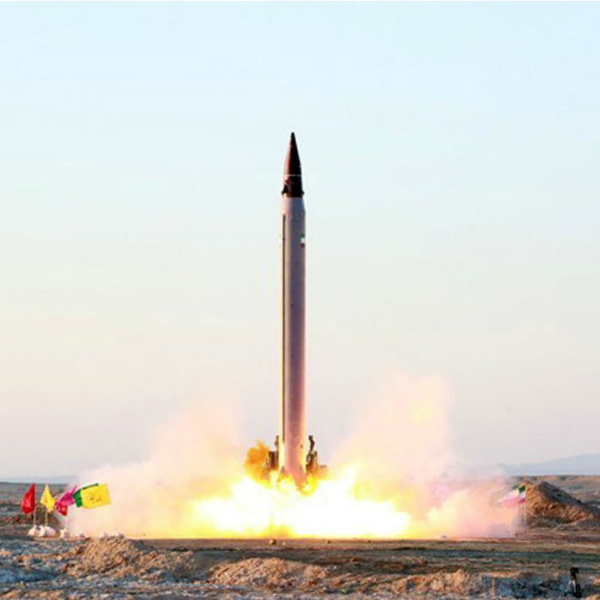 Islamic State carried out systemic rape of Yezidi women in Iraq, escapees recount horror Islamic State carried out systemic rape of Yezidi women in Iraq, escapees recount horror
16 April 2015
Baghdad: In what would send shivers down one's spine, the Yezidi women and girls who managed to escape the ISIS captivity have described horrifying accounts of sexual violence perpetrated against them by the monsters of the Islamic State, a Human Rights Watch report revealed Thursday.
Reports of rape, torture, forced marriages and other acts of sexual violence meted out to women by ISIS fighters, have been surfacing ever since the Islamic State overran Iraq's Nineveh province, capturing scores of Yazidis – which are an ancient minority group and regarded as infidels by the extremists.
An HRW report based on the interview of 20 women and girls who are ISIS escapees, documents the blood-curdling account narrated by the girls who suffered enormous physical and sexual violence at the hands of the Islamic State fighters in Iraq and Syria.
“ISIS forces have committed organized rape, sexual assault, and other horrific crimes against Yezidi women and girls,” said Liesl Gerntholtz, women’s rights director at Human Rights Watch.
She added that those who escaped, continue to endure indescribable emotional trauma and need to be treated.
“Sometimes I was sold. Sometimes I was given as a gift. The last man was the most abusive; he used to tie my hands and legs,” said one of the teenage girls.
“From 9:30 in the morning, men would come to buy girls to rape them. I saw in front of my eyes ISIS soldiers pulling hair, beating girls, and slamming the heads of anyone who resisted. They were like animals…. Once they took the girls out, they would rape them and bring them back to exchange for new girls. The girls’ ages ranged from 8 to 30 years… only 20 girls remained in the end,”the HRW quoted another girl recounting the heinous experience.
Even those who were luck enough to have avoided rape, talked of having suffered constant stress and anxiety as they witnessed others being tormented and raped.
Calling the acts of organized rape and sexual assault, sexual slavery, and forced marriage by ISIS forces as war crimes and crimes against humanity, the HRW has urged the UN Security Council prevent and address sexual violence in armed conflict.
This comes after the UN released a report describing how rape was being used as a war tactic in 19 conflict-torn countries.
The 11 women and 9 girls Human Rights Watch interviewed had escaped between September 2014 and January 2015. And all of them remained separated from family and showed signs of acute distress. Many said they had attempted suicide in order to avoid rape.
However, the ISIS has sought to justify the heinous act of sex slavery, by branding it as a part of Islamic theology.
In an online publication named 'Dabiq' in October last year, the ISIS posted an article named "The revival (of) slavery before the Hour," in which it referred to the Judgment Day and said that it was a "firmly established" element of the Shariah (Islamic Law) to enslave the families of infidels.
"One should remember that enslaving the families of the kuffar -- the infidels -- and taking their women as concubines is a firmly established aspect of the Shariah, or Islamic law," the ISIS wrote.
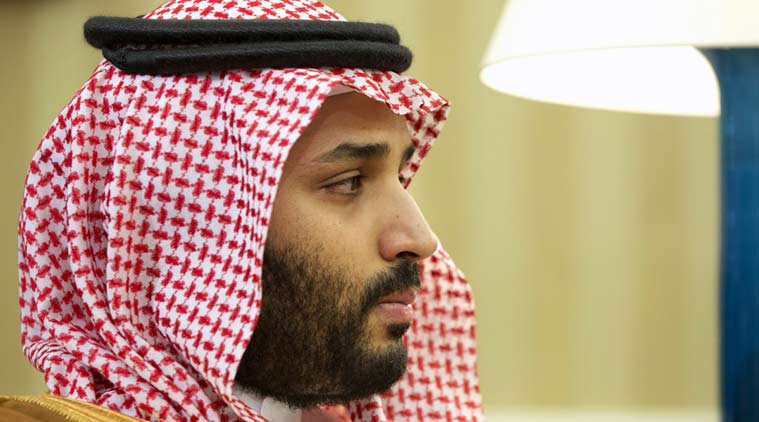 Four arrested at Manchester Airport on suspicion of terrorism Four arrested at Manchester Airport on suspicion of terrorism
15 April 2015
Four people have been arrested at Manchester Airport on suspicion of terrorism, police have said.
Two others were arrested on Tuesday as part of the same investigation, launched after nine people were stopped on the Turkey-Syria border on 1 April.
The four are aged between 22 and 47 and are all from Rochdale, Greater Manchester Police said.
Waheed Ahmed, 21, a Labour councillor's son, was one of two men arrested on Tuesday on suspicion of terrorism.
He was arrested at Birmingham Airport after being deported from Turkey.
'No imminent threat'
A 31-year-old man was also arrested over the same offence in the Rochdale area.
The six arrested people remain in custody.
The group of nine detained in Turkey included five adults and four children, who are currently wards of court.
Greater Manchester Police said officers were working to establish their reason for travel and apparent attempted entry into Syria.
Officers searched houses in the Rochdale borough as part of the investigation and police said no evidence was found to suggest any "imminent threat" to Rochdale or the rest of the UK.
Greater Manchester Police said in a statement: "Officers continue to work closely with Rochdale Borough Council, local partners, and faith leaders as part of the 'Prevent' initiative."
Footage released on Sunday shows Mr Ahmed leaving a police station in Hatay in Turkey, before getting a coach to Antalya.
His father, Rochdale Labour councillor Shakil Ahmed, said he had thought his son was on holiday.
In a statement he said: "My son is a good Muslim and his loyalties belong to Britain, so I don't understand what he's doing there."
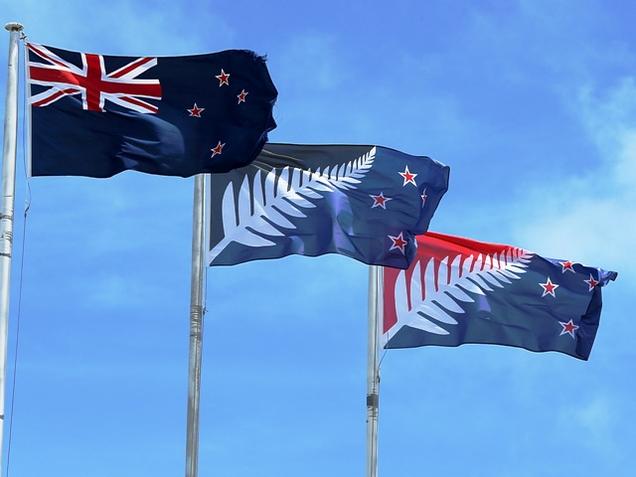 Activists: Syrian regime used chemical weapons in Idlib Activists: Syrian regime used chemical weapons in Idlib
15 April 2015
Human Rights Watch said Tuesday that strong evidence shows that Syrian regime forces launched chemical attacks on Idlib province in northern Syria.
According to a written statement by the international organization, the Assad regime used toxic chemicals in several barrel bomb attacks on Idlib between March 16 and 31.
The assaults, which violated the Chemical Weapons Convention and a United Nations Security Council resolution, affected at least 206 civilians, including 20 civil defense workers, HRW said.
The attacks also killed six civilians, including three children, the organization added.
“Syrian authorities appear once again to have shown complete disregard for human suffering by violating the global prohibition against chemical warfare,” Nadim Houry, HRW deputy Middle East and North Africa director, said. “The UN Security Council and countries that are members of the Chemical Weapons Convention need to respond strongly.”
Human Rights Watch said it documented evidence of three chemical attacks through photos, videos and eyewitnesses, who described smelling chlorine.
The Syrian opposition has repeatedly accused the Assad regime of using chemical and toxic weapons against civilians since August 2013, when a single attack reportedly killed more than 1,400 civilians.
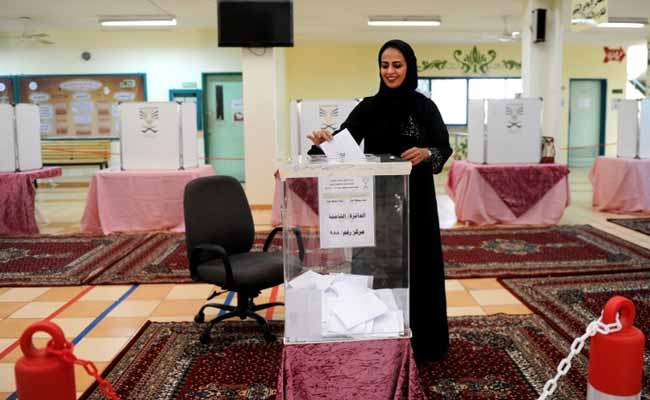 Russia opens way to missile deliveries to Iran, starts oil-for-goods swap; US concerned Russia opens way to missile deliveries to Iran, starts oil-for-goods swap; US concerned
14 April 2015
Russia paved the way on Monday for missile system deliveries to Iran and started an oil-for-goods swap, signalling that Moscow may have a head-start in the race to benefit from an eventual lifting of sanctions on Tehran. The moves come after world powers, including Russia, reached an interim deal with Iran this month on curbing its nuclear programme.
The Kremlin said President Vladimir Putin signed a decree ending a self-imposed ban on delivering the S-300 anti-missile rocket system to Iran, removing a major irritant between the two countries after Moscow cancelled a corresponding contract in 2010 under pressure from the West.
A senior government official said separately that Russia has started supplying grain, equipment and construction materials to Iran in exchange for crude oil under a barter deal. Sources told Reuters more than a year ago that a deal worth up to $20 billion was being discussed and would involve Russia buying up to 500,000 barrels of Iranian oil a day.
Officials from the two countries have issued contradictory statements since then on whether a deal has been signed, but Russian Deputy Foreign Minister Sergei Ryabkov said on Monday one was already being implemented. "I wanted to draw your attention to the rolling out of the oil-for-goods deal, which is on a very significant scale," Ryabkov told a briefing with members of the upper house of parliament on the talks with Iran. "In exchange for Iranian crude oil supplies, we are delivering certain products. This is not banned or limited under the current sanctions regime."
He declined to give further details. Russia's Agriculture Ministry declined comment and the Energy Ministry did not respond to a request for comment. There was no comment from Iran. Iran is the third-largest buyer of Russian wheat, and Moscow and Tehran have been discussing the oil-for-goods barter deal for more than a year.
Russia hopes to reap economic and trade benefits if a final deal is concluded to build on the framework agreement reached in the Swiss city of Lausanne between Iran and Russia, the United States, France, Britain, Germany and China.
They have until June 30 to work out a detailed technical agreement under which Iran would curb its nuclear programme and allow international control in exchange for a lifting of economic sanctions.
U.S. Secretary of State John Kerry on Monday raised concerns about the missile system sale with Russian Foreign Minister Sergei Lavrov, State Department spokeswoman Marie Harf said. She said, however, that U.S. officials do not think Russia's actions will hurt unity between the major powers in the nuclear talks.
TWO TO TANGO
Lavrov said the agreement in Lausanne wiped out the need for Moscow's ban on the delivery of S-300 and that the system was defensive, hence would pose no threat to Iran's foe, Israel. "As a result of suspending the contract, we did not receive major sums that we were due. We see no need to continue doing this given progress in talks on Iran's nuclear programme and the absolutely legitimate nature of the forthcoming deal," he said.
The United States and Israel had lobbied Russia to block the missile sale before it did so in 2010, saying the S-300 system could be used to shield Iran's nuclear facilities from possible future air strikes. Leonid Ivashov, a retired Russian general who now heads the Moscow-based Centre for Geo-Political Analysis think-tank, said the move was part of a race for future contracts in Iran. "If we now delay and leave Iran waiting, then tomorrow, when sanctions are fully lifted, Washington and its allies will get Iran's large market," RIA news agency quoted him as saying.
Ryabkov suggested Russia had high hopes that its steady support for Iran would pay off in energy cooperation once international sanctions against Tehran are lifted. "It takes two to tango. We are ready to provide our services and I am sure they will be pretty advantageous compared to other countries," he said. "We never gave up on Iran in a difficult situation ... Both for oil and gas, I think the prospects for our cooperation should not be underestimated."
He also reiterated Moscow's view that an arms embargo on Iran should be lifted once a final nuclear deal is sealed. Sanctions have cut Iran's oil exports to about 1.1 million barrels per day from 2.5 million bpd in 2012. Analysts say Iran is unlikely to see a major boost in exports before next year.
One upper house lawmaker asked Ryabkov whether lifting sanctions on Tehran could undermine Russia's position on global energy markets, including as the main gas supplier to Europe. "I am not confident as yet that the Iranian side would be ready to carry out supplies of natural gas from its fields quickly and in large quantities to Europe. This requires infrastructure that is difficult to build," he said.
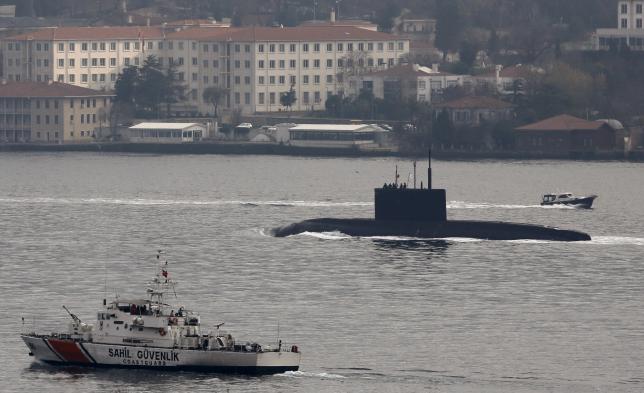 Kerry to ask Congress for more time and space on Iran deal Kerry to ask Congress for more time and space on Iran deal
14 April 2015
WASHINGTON: US Secretary of State John Kerry will make the case this week to skeptical Republicans and Democrats that the US Congress should give him another two and a half months to secure a final nuclear deal with Iran.
In closed briefings with the full House of Representatives on Monday and the Senate on Tuesday, Kerry also hopes to blunt legislation that would give Congress the opportunity to approve or reject sanctions relief in the deal.
“The president wants Congress to ensure that our negotiators have the time and space that they need to reach an agreement by the end of June,” White House spokesman Josh Earnest said.
Kerry will be accompanied by US Treasury Secretary Jack Lew, Energy Secretary Ernest Moniz and a representative from the US intelligence community.
Some Democrats are lining up with Republicans and could form a veto-proof majority to support the bill, which President Barack Obama says would undermine the delicate final stage of negotiations ahead of a self-imposed June 30 deadline.
The backing by some lawmakers in Obama’s party illustrates the depth of concern in Washington over a possible nuclear-armed Iran and the sense of many members of Congress that they are being shut out of the process to contain it.
Kerry’s task this week is to persuade Congress to give him the time to negotiate a comprehensive agreement as well as, if possible, to temper a bill put forward by Senate Foreign Relations Committee Chairman Bob Corker.
Under Corker’s bill Congress would have 60 days to review the agreement, during which the Obama administration would be barred from giving Iran most sanctions relief and members could vote on whether to approve or reject sanctions measures. On Tuesday, the Senate Foreign Relations Committee is scheduled to debate amendments and vote on whether to send the legislation for consideration by the full Senate.
Lawmakers have introduced about 50 amendments to the bill, with Democrats mostly trying to give negotiators more breathing room and Republicans trying to make the bill so restrictive that some supporters say it could be impossible to reach a deal.
One Democratic amendment would shorten the time given Congress to review the deal to 30 days from 60. Another would eliminate a provision of the legislation requiring the White House to certify that Iran has not supported or carried out an act of terrorism against the United States or any US person.
Republican Senator Marco Rubio, who announced his US presidential candidacy on Monday, has proposed an amendment requiring the Obama administration to certify that Iran has accepted Israel’s right to exist. Another Republican-sponsored amendment would require the agreement to be a treaty, which would require the approval of two-thirds of the Senate.
It was not immediately clear which amendments would be allowed to come up for a vote in the Senate committee. Earnest reiterated Obama would veto the bill as written.
Earnest said many Republicans may not be open to Kerry’s argument “because they’re not considering the facts, they’re considering the politics.” He added: “There are some Democrats who will listen to this pitch. I don’t know if it will convince them all.”
Obama on Monday planned to pitch the deal in a private meeting with top American Jewish leaders, who the White House would welcome also contacting lawmakers, Earnest said. Close US ally Israel strongly opposes the deal, fearing it could open the way to Iran securing a nuclear bomb.
The April 2 framework nuclear deal that Iran struck with Britain, China, France, Germany, Russia and the United States seeks to limit the Iranian nuclear program in exchange for relief from economic sanctions. Tehran maintains its program is for peaceful purposes.
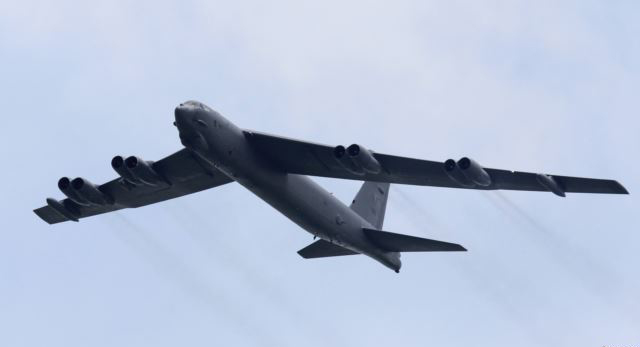 Bomb alert forces evacuation of Germanwings flight Bomb alert forces evacuation of Germanwings flight
13 April 2015
Frankfurt: Passengers and crew on a Germanwings flight from Cologne to Milan were on Sunday ordered to evacuate the plane as it prepared to take off due to a bomb alert.
A statement issued by the low-cost airline, whose parent company is Lufthansa, said it was informed of the bomb alert by police.
The incident comes less than three weeks after a Germanwings flight from Barcelona to Duesseldorf crashed in the French Alps killing all 150 people on board.
Co-pilot Andreas Lubitz is believed to have deliberately flown the plane into a mountainside.
A bomb detection team with sniffer dogs searched the plane in Cologne, an A320 Airbus, after the 126 passengers and crew had got off, although it was not immediately known if anything was found.
The passengers were transferred to another flight
A Germanwings plane in Berlin was evacuated today after the airline received a bomb threat.
The threat was made against flight 826 at Germany’s Cologne-Bonn airport on Sunday evening, just as it was taxiing towards the runway to fly to Milan, Italy, according to the airline.
Germanwings, a budget airline owned by Lufthansa, says that the airport tower in Cologne alerted the pilot that the Airbus A320 had received a threat by email 15 minutes before the plane was scheduled to leave.
Instead of taking off, the plane was taken to a safe position where the passengers and crew were evacuated. Federal police were brought in to investigate but sniffer dogs found no evidence of explosives, a German news agency reported.
After the scare, Germanwings planned to fly customers to Milan on an alternative aircraft. Italian media says that 126 passengers were on board, but no further details have been released by the airline.
The bomb scare comes just weeks after a Germanwings flight crashed in the French Alps, killing everyone on board.
 14 killed as militants attack security personnel in Egypt 14 killed as militants attack security personnel in Egypt
13 April 2015
At least 14 people, including 11 security personnel, were killed and about 50 others injured on Monday in two separate attacks, claimed by an Islamic State affiliate, as militants targeted an army vehicle and a suicide bombing hit a police station in Egypt's restive North Sinai.
A roadside blast targeted an armoured vehicle in Sheikh Zawayed area that is a stronghold of Ansar Beit al-Maqdis militant group, killing six army personnel, including an officer, and injuring two others. Hours after the attack on the army vehicle, a suicide car bombing targeted a police station in North Sinai's provincial capital of Al-Arish.
The security forces opened fire on the car, which led to its explosion, killing eight people, including five policemen. Forty five others, including conscripts and civilians, were injured.
The facade of the police station was damaged and several nearby buildings also suffered minor damages. Sinai-based Ansar Beit al-Maqdis which changed its name to Sinai Province after it pledged allegiance to Islamic State militant group claimed responsibility for the two attacks.
Sinai region has witnessed many violent attacks by militants since the January 2011 revolution that toppled ex-president Hosni Mubarak. The attacks targeting police and military increased after the ouster of Islamist ex-president Mohamed Morsi in 2013.
Over 500 security personnel have been reported killed since then.
The military has launched frequent security campaigns in the area, arrested suspects and demolished houses that belong to terrorists, including those facilitating tunnels leading to the Gaza Strip.
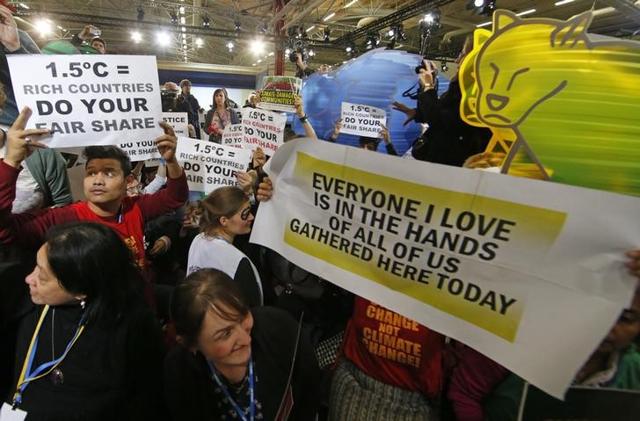 Latin America celebrates push by Obama, Castro to heal US-Cuba rift Latin America celebrates push by Obama, Castro to heal US-Cuba rift
11 April 2015
As Latin American leaders applaud a historic thawing of animosity between the United States and Cuba, US President Barack Obama will meet Raul Castro for talks on Saturday that could further boost his reputation in the region.
Obama and the Cuban president shook hands and spoke briefly at the opening ceremony of the Summit of the Americas on Friday night, a gesture that drew praise from other leaders who have in recent years called for changes in US policy on Cuba.
Even Venezuela's socialist president, Nicolas Maduro, toned down his usual anti-American rhetoric to hail the rapprochement as well as Cuba's attendance at the summit for the first time.
"The fact that Cuba is here is the greatest achievement of Latin America and the Caribbean," said Maduro, who this week appeared to soften his stance toward Washington after a recent surge in tension.
"When Raul sat in that chair, which belongs to Cuba, 60 years of revolution sat down. Fidel sat down," he added, referring to former Cuban leader Fidel Castro, who handed over power to his younger brother Raul in 2008.
Obama, 53, who was not even born when the Castro brothers swept to power in a 1959 revolution, assured Latin American leaders that the United States was no longer interested in trying to impose its will on the region.
Earlier on Friday, Obama met with opposition activists from across Latin America, including two Cubans, but there was very little media access to the session, curbing publicity of an encounter that could have annoyed Castro's communist government.
Obama and Castro were not seated together at a dimly-lit, open air dinner amid ruins in Panama City's historic quarter on Friday night and journalists briefly allowed in for toasts saw no interaction between the two men.
But the overall tone has been upbeat as Obama and the 83-year-old Castro move toward restoring full diplomatic relations and improving trade and travel ties following a dramatic policy shift announced by both men in December.
Obama seems close to removing Cuba from a US list of countries that it says sponsor terrorism. Castro has insisted on it as a condition for restoring diplomatic ties.
"Our Cuba policy, instead of isolating Cuba, was isolating the United States in our own backyard," Obama's deputy national security adviser, Ben Rhodes, said on Friday.
Washington imposed trade sanctions on Cuba from 1960 and broke off diplomatic relations with Cuba in 1961. The two countries then became fierce Cold War foes.
But Obama has overhauled Cuba policy in the last four months, agreeing to an end to hostility and using executive powers to ease some trade and travel restrictions.
Taking Cuba off the US terrorism list would accelerate the detente, although it is not clear how soon Obama will announce it.
Facing some domestic opposition to his policy, he says his government will continue to push Cuba for reforms, especially to improve human rights and political freedoms.
"We'll have our differences government to government with Cuba on many issues, just as we differ at times with other nations within the Americas, just as we differ with our closest allies," Obama said on Friday.
Castro insists he will be cautious in passing any reforms and that Cuba has no intention of ending Communist Party rule.
Obama can continue to ease specific sanctions but the US trade embargo against the island can only be overturned by the Republican-controlled Congress.
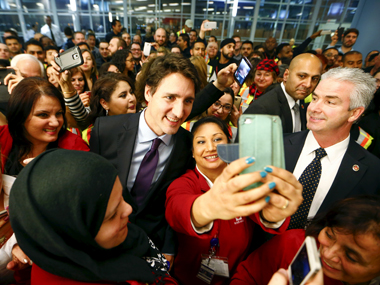 UAE warns Pakistan of ‘heavy price for ambiguous stand’ on Yemen UAE warns Pakistan of ‘heavy price for ambiguous stand’ on Yemen
11 April 2015
KARACHI: Pakistani lawmakers’ call for the government to remain neutral on the escalating crisis in Yemen has evoked a strong response from the United Arab Emirates (UAE).
“The vague and contradictory stands of Pakistan and Turkey are an absolute proof that Arab security — from Libya to Yemen — is the responsibility of none but Arab countries,” UAE’s Minister of State for Foreign Affairs Dr Anwar Mohammed Gargash said.
Speaking to renowned Emirati newspaper Khaleej Times, Garhash warned Pakistan of having to pay a “heavy price” for taking on what he called an “ambiguous stand”. He added that Pakistan should take a clear position “in favour of its strategic relations with the six-nation Arab Gulf cooperation Council”.
“The Arabian Gulf is in a dangerous confrontation, its strategic security is on the edge, and the moment of truth distinguishes between the real ally and the ally of media and statements,” Gargash tweeted moments after the Pakistani parliament passed the resolution insisting on neutrality in the Yemen conflict.
Gargash went to symbolise Pakistan’s resolution as equivalent of siding up with Iran instead of the Gulf. “Tehran seems to be more important to Islamabad and Ankara than the Gulf countries,” Gargash said.
“Though our economic and investment assets are inevitable, political support is missing at critical moments,” he added.
The Parliament on Friday passed a unanimous resolution, vowing to defend Saudi Arabia’s territorial integrity and the holy places of Makkah and Madinah. But none of these locations appear to have so far been threatened by the conflict.
“Pakistan should play a mediating role and not get involved in the fighting in Yemen,” the resolution stated, adding that “the Parliament of Pakistan ... underscores the need for continued efforts by the government of Pakistan to find a peaceful resolution of the crisis”.
“[Parliament] desires that Pakistan should maintain neutrality in the Yemen conflict so as to be able to play a proactive diplomatic role to end the crisis,” it stated.
The Saudi-led coalition launched air strikes against the Houthi rebels on March 26 in support of President Abedrabbo Mansour Hadi after they seized the capital and forced him to flee to Aden.
 China building artificial islands in the Pacific, stoking tensions with neighbours China building artificial islands in the Pacific, stoking tensions with neighbours
10 April 2015
SUBIC BAY, Philippines — Just over the horizon from this mostly derelict naval base, the main regional outpost of the U.S. Navy when it ruled the Pacific as its own private lake, another country that aspires to become a global power is busily at work.
To support part of its brazen — some might say preposterous — claim to about 85 per cent of the South China Sea, Beijing is building artificial islands on tiny outcroppings, atolls and reefs in hotly disputed waters in the Spratly Archipelago.
To do so, the Chinese have been using formidable seaborne dredges to haul up huge amounts of sand and coral from the ocean floor, and bulldozing what is brought to the surface onto at least six of the far-flung lumps of rock.
The growing outposts are part of a chain of more than 700 islets, none of which rises more than four metres above sea level. The string of promontories is closest to the
Philippines, Malaysia, Vietnam and Brunei, in that order. But it is China, with a coastline more distant than any of the others, that has seized and is expanding on scraps of what little high ground there is.
Adm. Harry Harris Jr., commander of the U.S. Navy’s Pacific fleet, dubbed Beijing’s island-building project in the South China Sea “a great wall of sand.” Speaking last week in
Australia, he said China has created “over four square kilometres of artificial land mass,” adding there were serious questions about Beijing’s intentions.
For its part, China accused the U.S. of meddling and said it could do as it liked in places that had always been part of its sovereign territory, including areas close to the Philippine shoreline.
Beijing’s massive claim, which it calls the nine-dash line, is indicated on ancient Chinese maps and scrolls that showed where Chinese vessels sailed and landed long before European powers “discovered” the region.
In doing so, Beijing is ignoring neighbouring countries far closer to the disputed territories who claim their ancestors have long used these same islets and waters.
To back what it says belongs to China, Beijing has been expanding islets in waters that are clearly within the 200-mile (320-km) exclusive zone of the Philippines, Malaysia and Vietnam. It has also sent its coast guard to prevent Chinese boats being arrested for illegal fishing and to warn off fishing boats and sailors from countries with territorial claims.
The Chinese actions seriously complicate an already murky legal situation. There is no clear definition or consensus in maritime law about when or if a piece of rock that rises just above the surface can become part of a country’s sovereign territory through expansion by artificial means.
The assumption, backed by surveillance photographs, is China is building military bases, radar facilities and an airfield in the middle of the ocean. Jane’s Defence Weekly estimates the new landmass is more than three kilometres long, capable of handling large aircraft, including long-range bombers and surveillance planes.
On Thursday, a spokeswoman for China’s Foreign Ministry insisted the islands were being built to give ships a haven in the typhoon heavy region.
“We are building shelters, aids for navigation, search and rescue as well as marine meteorological forecasting services, fishery services and other administrative services” for both China and its neighbours, the spokeswoman said, according to Reuters, though no one was buying that explanation.
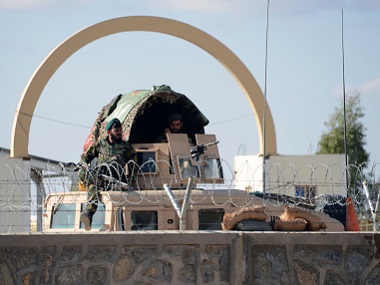 US, Cuba hold highest-level meeting in more than 50 years US, Cuba hold highest-level meeting in more than 50 years
10 April 2015
PANAMA CITY: The US and Cuban foreign ministers sat down for talks late on Thursday in the highest-level meeting between the two sides since the early days of the Cuban revolution more than half a century ago.
US secretary of state John Kerry met with Cuban foreign minister Bruno Rodriguez in a Panama City hotel, the latest step toward better ties since President Barack Obama announced a historic shift in Cuba policy on December 17.
Kerry and Rodriguez talked sitting face to face on separate white couches in a room visible through a large glass window.
The meeting appeared to last more than two hours and broke up at around 11:30pm. At times, Kerry gesticulated to Rodriguez with his hands as security officials stood guard outside.
The meeting took place on the eve of the Summit of the Americas in Panama, where Obama and Cuban President Raul Castro will cross paths along with other leaders in the region.
Obama appears to be close to removing Cuba from the list of countries that the US government says sponsor terrorism. Cuba's inclusion on the list has exacerbated tensions and made it harder for US firms to do business in Cuba.
The US state department has now recommended that Cuba be taken off the list, a US senate foreign relations committee aide said on Thursday.
Obama's decision to move toward restoring full diplomatic ties marks a sea change in relations since the Cuban revolution, when US-backed dictator Fulgencio Batista fled the island on January 1, 1959, as Fidel Castro and his revolutionaries seized control.
John Foster Dulles and Gonzalo Guell were the last US and Cuban foreign ministers to hold a formal meeting, in Washington on September 22, 1958, said a US official who spoke on condition of anonymity.
The highest-level meeting after the revolution took place in April 1959, between then-vice president Richard Nixon and Fidel Castro, who Cuba's prime minister at the time. Relations between the United States and Cuba rapidly deteriorated soon after.
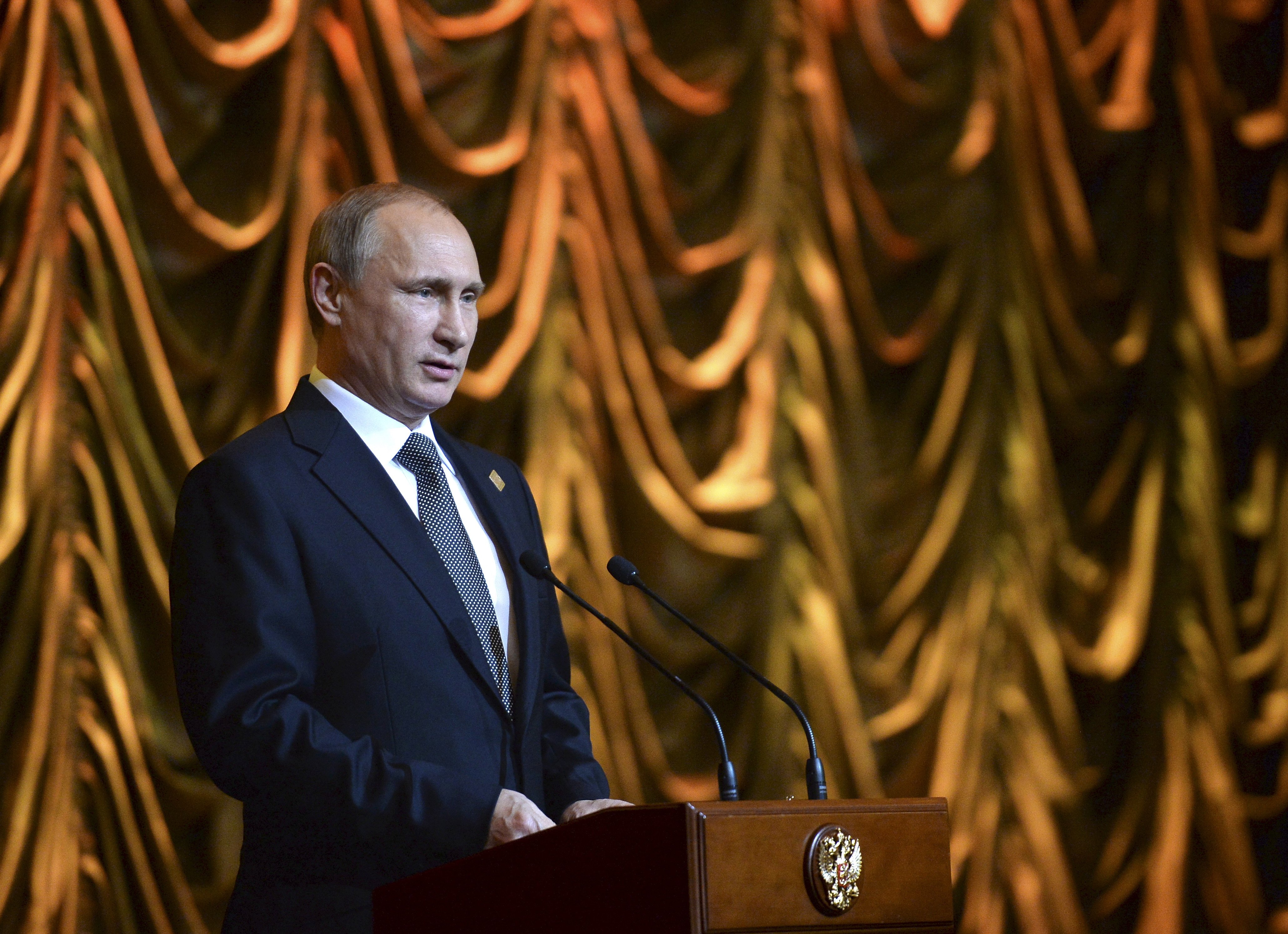 Rouhani: No Nuclear Deal Until All Sanctions Removed Rouhani: No Nuclear Deal Until All Sanctions Removed
9 April 2015
Iranian President Hassan Rouhani says Tehran will not sign any nuclear deal with the West unless all international sanctions are lifted.
In a televised speech Thursday to mark Iran's "National Nuclear Technology Day," President Rouhani also dismissed what he referred to as efforts by the world powers to "use the language of force against Iran" in securing an agreement.
Iran and six world powers last week reached a framework deal that would scale back Iran's nuclear program in exchange for the lifting of international sanctions, though many details have yet to be worked out before a June 30 deadline for a final deal.
A major disagreement seems to exist regarding the pace at which sanctions will be lifted. Iran demands they be removed immediately and permanently, while the United States prefers a more gradual phasing-out process.
In comments that reflect another area of dispute, U.S. Secretary of State John Kerry late Wednesday told the PBS Newshour that Iran must disclose its past alleged military-related nuclear activities if a final deal is to be reached.
"They have to do it. It will be done. If there's going to be a deal, it will be done. It will be done," he said.
The U.S. government and many of its allies believe Iran's nuclear program is aimed at producing a weapon, despite Iran's insistence that the program is for civilian energy purposes.
Iran so far has refused to offer an explanation for findings by the U.N. nuclear watchdog that suggest certain parts of Tehran's nuclear program have only military-related uses.
The U.S. and Iran have both released their own bullet-point interpretations of the framework agreement, since officials said they could not agree on a comprehensive document.
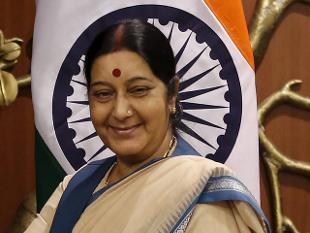 China to build Pakistan-Iran gas pipeline: report China to build Pakistan-Iran gas pipeline: report
9 April 2015
ISLAMABAD: In an attempt to curtail Pakistan’s severe energy shortage, China has agreed to build a pipeline bringing natural gas from Iran to Pakistan. The final deal is to be signed during the long-sought visit of the Chinese President Xi Jinping to Islamabad in April, Pakistani officials said.
Where most countries are unwilling to invest in Pakistan given the current situation, this deal is expected to mark China’s commitment towards the development of infrastructure in ally Pakistan.
The pipeline would amount to a premature profit for both Pakistan and Iran due to the agreement between Tehran and the US and other world powers to prevent Iran from developing nuclear weapons.
Pakistan had previously been threatened with sanctions by the US if it carried on with the project.
Named the “Peace Pipeline,” the project will further strengthen ties between Pakistan and Iran.
“We’re building it,” Petroleum Minister Shahid Khaqan Abbasi told The Wall Street Journal, referring to the pipeline. “The process has started.”
Due to a shortage of fuel for its power-generation plants, Pakistan is currently suffering from a critical electricity deficit. The pipeline however, is expected to bring the required gas to Pakistan.
According to reports, Pakistan has been in a constant struggle to convince China to build Pakistan’s portion of the pipeline, giving an estimate of $2 billion.
Tehran says that its 900 kilometer part of the pipeline from an Iranian gas field is complete. Iran has long pressed Pakistan to build its half of the scheme.
Pakistan however, has not yet begun construction because of the susceptible sanctions from the US for trading with Iran. In order to avoid the consequences, Islamabad had been trying to work with China, asking them to construct the pipeline but not yet connect it to the Iranian portion.
The upcoming Iran nuclear agreement has given Islamabad further incentive to clear the project as the deal is expected to ease the sanctions once the deal is completed. If the framework is followed, prohibitions on Iranian energy exports would be among the first restrictions to be lifted.
“This [Iran nuclear agreement] will help us in getting a few things which were coming into the way of the Iran-Pakistan gas pipeline to be cleared and we will move forward,” Pakistan’s ambassador to Iran, Noor Muhammad Jadmani, said Sunday in Tehran, according a report on IRNA, the official Iranian news agency.
Pakistan is negotiating with China Petroleum Pipeline Bureau, a subsidiary of Chinese energy giant China National Petroleum Corporation, to build 700 kilometers of pipeline from Gwadar in Balochistan to Nawabshah in Sindh, where it will connect to Pakistan’s existing gas-distribution pipeline network.
China Petroleum Pipeline Bureau referred questions to CNPC, which didn’t respond to a request for comment.
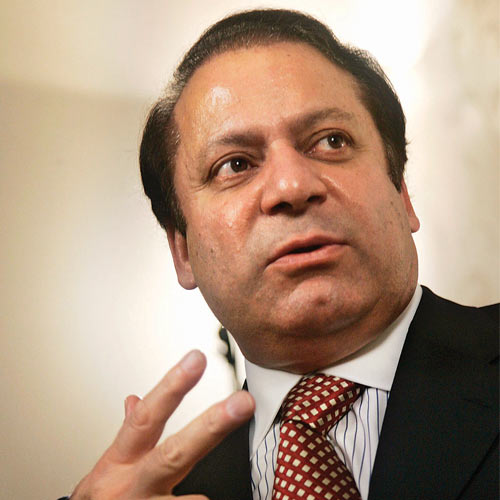 US, Japan trust each other but both wary of China: Poll US, Japan trust each other but both wary of China: Poll
8 April 2015
TOKYO: Over seven decades after Japan attacked Pearl Harbor and dragged the United States into a global war, Americans and Japanese overwhelmingly trust each other and are wary of China, an opinion poll has shown.
In contrast to the oft-heard calls from Beijing for more Japanese contrition over World War II, around two-thirds of Americans believe Tokyo has apologised enough or has no need to say sorry.
The findings, released Tuesday by the US-based Pew Research Center come just weeks before Shinzo Abe is set to travel to the United States, where he will become the first Japanese prime minister to address a joint session of the US Congress.
His speech will be carefully watched for any indication of how he will mark the 70th anniversary of the end of WWII later in the year, with Beijing urging him to "show sincerity" over his nation's past crimes.
But the poll by Pew found no significant animosity exists between people in Japan and the US, despite their four years of war until 1945 and the subsequent American occupation until 1952.
"Adversaries in World War II, fierce economic competitors in the 1980s and early 1990s, Americans and Japanese nonetheless share a deep mutual respect," the think tank said in its annual report based on the survey of 1,000 people from each country.
About 68 percent of Americans trust Japan and 75 percent of Japanese trust the United States, the survey showed, while only 30 percent of Americans and seven percent of Japanese trust China.
Six in ten Americans believe that the rise of China as a military and economic power makes relations between Japan and the United States more important, it said.
At the same time, "more Americans, especially young Americans, think it is important to have strong economic ties with China than believe it is important to have such ties with Japan," it said.
"A majority of Americans see Japan as a status quo economic power, neither rising nor declining."
Japanese brands fare well in US public opinion, with Sony seen in a favourable light by 88 percent of respondents and carmaker Toyota by 85 percent.
However, for Brand Abe, the news was not so good: "only 11 percent of Americans have a favourable view of current Japanese Prime Minister Shinzo Abe."
"But this can largely be attributed to the fact that 73 percent say they have never heard of him," it said.
On questions of history, the atomic bombings of Hiroshima and Nagasaki, which killed 140,000 people and 70,000, respectively, has long divided Americans and Japanese.
In the latest survey, 56 percent of Americans say they believe the use of nuclear weapons was a justified means of ending the war; 34 percent said it was not.
In Japan, only 14 percent say the bombing was justified, versus 79 percent who say it was not.
"Despite this lingering disagreement over the justification for Hiroshima and Nagasaki, few Americans or Japanese believe Japan owes an apology for its actions during WWII," it said.
A total of 61 percent of Americans say either Japan has apologised sufficiently for the war or no apology is now necessary, against 29 percent who say Japan has not apologised enough for its actions during the conflict.
 White South Carolina policeman charged with murdering black man White South Carolina policeman charged with murdering black man
8 April 2015
A white South Carolina police officer was arrested and charged with murder on Tuesday after a video showed him shooting eight times at the back of a 50-year-old black man who was running away after a traffic stop and died at the scene.
The FBI and the U.S. Justice Department launched a separate investigation into the fatal shooting, which is the latest flashpoint in a series of incidents that have raised questions about policing and race relations across the country.
Civil rights leaders called for calm, while many on social media said the official response would have been very different had the incident not been filmed by a member of the public who then handed the video to the victim's family.
"When you're wrong, you're wrong," North Charleston Mayor Keith Summey told reporters, adding that the recording had been key in the decision to charge the officer.
"If you make a bad decision, I don't care if you're behind the shield or just a citizen on the street, you have to live by that decision," Summey said.
The shooting occurred on Saturday morning after officer Michael Slager, 33, stopped Walter Scott for a broken brake light, police said.
The video shows a brief scuffle between the two men before Scott begins to run away. Slager is then seen taking aim with a handgun before shooting eight times at Scott's back. Scott then slumps facedown onto the grass.
According to a police report, Slager, who joined the department in 2009, told other officers Scott had taken his stun gun from him. At no point in the video, which does not show the initial contact between the men, does Scott appear to be armed.
Slager places the victim in handcuffs as he lies facedown on the ground, and then the officer takes several paces back to a spot near where he opened fire.
The video then shows him appearing to pick something up, return to Scott, and then drop it next to him on the ground.
FEW BLACK POLICE
The shooting took place in North Charleston, which is home to about 100,000 people, nearly half of whom are black, 2010 U.S. Census data shows.
By contrast, only about 18 percent of its police department's roughly 340 officers are black, the local Post and Courier newspaper reported last year.
Elder James Johnson, president of the local chapter of the National Action Network civil rights organization, welcomed the swift decision to charge Slager.
"We still want to tell the community to remain calm," he said.
Chris Stewart, an attorney for Scott's family, said they cried and hugged when they learned of the officer's arrest.
"What happened today doesn't happen all the time," he told a news conference. "What if there was no video? What if there was no witness or hero to come forward?"
The family plans to file a civil rights suit against Slager, the department and the city, he said.
The person who filmed the video is speaking with investigators and will come forward publicly "at some point," Stewart added.
Scott's brother, Anthony Scott, said his late sibling served two years in the U.S. Coast Guard, that he was a father of four, and that he loved the Dallas Cowboys.
He said his brother would "never" have fought the officer for his stun gun. "If you're caught, you're caught," he said.
SOCIAL MEDIA FRENZY
According to the Post and Courier, Scott had a warrant out for his arrest from family court at the time of his death.
His arrest history, mostly for contempt of court charges for failing to pay child support, included one accusation of a violation stemming from an assault and battery charge in 1987, the newspaper reported.
Social media sites saw a frenzy of reaction, mostly by people suggesting that without the video, no action might have been taken against the officer.
"Imagine how many times throughout history they got away with murder because there wasn't a camera," one person on Twitter commented.
South Carolina Governor Nikki Haley, a Republican, said the shooting was "not acceptable," and vowed the criminal judicial process "will proceed fully."
Slager, who was also formerly a member of the Coast Guard, had not previously been disciplined by the department, the Post and Courier said. He has two stepchildren and a pregnant wife.
The paper reported that in 2013 a man accused him of shooting him with a stun gun without cause, but that Slager was cleared of wrongdoing after an internal police investigation.
North Charleston Police Chief Eddie Driggers appeared to be fighting tears as he described his feelings watching the video.
"I think that all of these police officers on this force, men and women, are like my children," he told reporters. "So you tell me how a father would react."
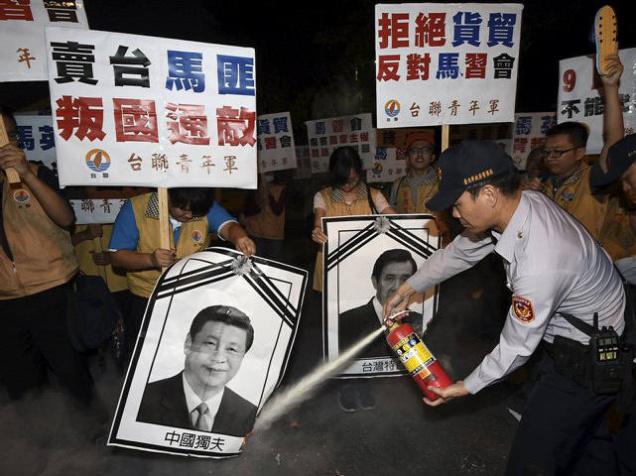 Obama: Netanyahu 'misjudged' in demanding Iran recognize Israel as part of nuclear deal Obama: Netanyahu 'misjudged' in demanding Iran recognize Israel as part of nuclear deal
7 April 2015
Obama's comments came a day after he told New York Times in an interview that he is "absolutely committed" to Israel's security, stressing that the United States had “got their backs”.
"The notion that we would condition Iran not getting nuclear weapons in a verifiable deal on Iran recognizing Israel is really akin to saying that we won't sign a deal unless the nature of the Iranian regime completely transforms," Obama said in an interview with National Public Radio (NPR).
He continued by saying: "I want to return to this point: We want Iran not to have nuclear weapons precisely because we can't bank on the nature of the regime changing. That's exactly why we don't want to have nuclear weapons. If suddenly Iran transformed itself to Germany or Sweden or France then there would be a different set of conversations about their nuclear infrastructure."
White House spokesman Josh Earnest wrote on Twitter that the claims made by Obama were similar to those made by former Mossad chief Efraim Halevy in an op-ed article for Ynetnews Monday. "POTUS tells @nprnews conditioning Iran deal on recognition of Israel is a "misjudgment"; fmr Mossad chief says same," Earnest wrote, adding a link to the article.
Israeli officials oppose the framework agreement reached last week between US-led international negotiators and Iran. Israeli Prime Minister Benjamin Netanyahu says Iran has vowed to annihilate his country, and no deal should be struck until Iran recognizes Israel's right to exist.
In a round of interviews to the American media on Sunday, Netanyahu urged the United States to seek a better deal to curb Iran's nuclear program and said he would press American lawmakers not give Tehran "a free path to the bomb."
"I think the alternatives are not either this bad deal or war," Netanyahu said on CNN's "State of the Union" on Sunday.
"I think there's a third alternative - that is standing firm, ratcheting up the pressure until you get a better deal. And a better deal would roll back Iran's vast nuclear infrastructure, require Iran to stop its aggression in the region and its terror worldwide, and its calls and actions to annihilate the state of Israel," he said.
State Department Spokesperson Marie Harf responded Monday to the criticism issued by Benjamin Netanyahu against the framework agreement, saying that Netanyahu "said that Iran would not dismantle any of its centrifuges; but under the JCPA, Iran will physically remove about 13,000 centrifuges from where they stand today in Iran’s nuclear facilities."
"All of the pipework that connects these centrifuges to actually enriched uranium – they have to be connected in order to enrich – will be dismantled and also removed. This dismantling will ensure that these centrifuges cannot be brought back online for a long time."
The White House is working aggressively to convince US lawmakers and other critics to embrace the framework agreement reached on Thursday between Iran, the United States and five other major powers.
The framework was a major step toward a final deal but did not include an agreement on the timing and scope of sanctions relief. Many other issues also must be hammered out before the end-of-June deadline for a final accord.
Iran's negotiators have interpreted the outline differently, saying sanctions would be lifted immediately once an accord is signed.
Earnest said Washington would want to see sustained compliance by Iran first and Iran would be more likely to comply if it knew sanctions could be applied again.
US Energy Secretary Ernest Moniz said on Monday the differences in portrayals of the deal by both sides were not disputes over content but were related to what each side chose to emphasize.
"There's no doubt that right now there's a different narrative, but not in conflict with what's written down," Moniz said.
A key US ally, Saudi Arabia, sounded a note of caution on the agreement.
Adel al-Jubeir, the Saudi ambassador to Washington, told reporters the oil-rich kingdom wants to see more details on the restrictions on Iran’s nuclear work, nuclear inspections, and when international sanctions on Tehran would be lifted.
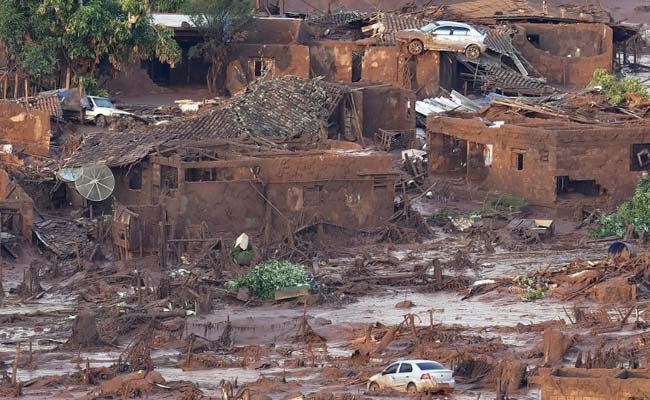 South Africa detains teenage girl trying to join Islamic State South Africa detains teenage girl trying to join Islamic State
7 April 2015
The girl was reported missing by her grandparents Sunday morning when she disappeared from her Cape Town home.
She was found on a British Airways flight bound for Johannesburg later that day.
The girl was reportedly heading for Turkey, where she was allegedly planning to cross the border into Syria.
According to local reports, investigators found evidence in the girl`s room linking her to recruiters for IS, jihadists who have captured swathes of Syria and Iraq and who have attracted hundreds of foreign fighters.
"An investigation is under way as to how far this network goes, whether there is a cell in the country, and what the methods of recruiting and funding are," Mahlobo told The Star.
"We cannot allow South Africa to be used as a recruitment space."
The girl was released into the care of her family after being questioned.
In February, the United Nations Security Council warned South Africa against terror groups that may use the country as an operational base.
South African authorities have detained a 15-year-old girl who was travelling to join Islamic State, the state security ministry said on Monday.
The teenager was intercepted at Cape Town airport on Sunday after evidence was found in her bedroom indicating that she had been in contact with Islamic State recruiters, the ministry added.
"We can confirm that she was planning to leave the country with the intention of joining IS, and had been actively engaged with social media networks," Minister of State Security David Mahlobo was quoted as saying in The newspaper.
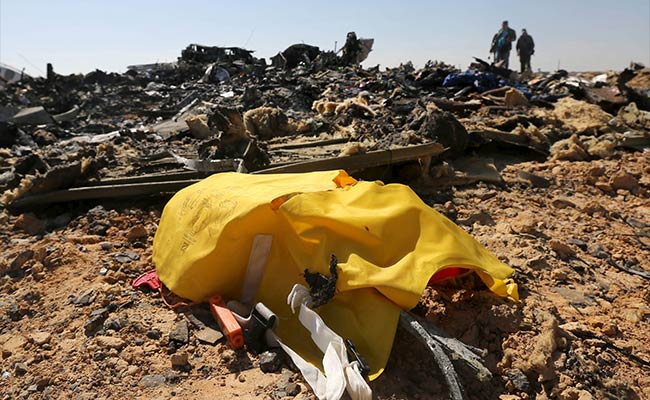 President Obama Calls Preliminary Iran Nuclear Deal ‘Our Best Bet’ President Obama Calls Preliminary Iran Nuclear Deal ‘Our Best Bet’
6 April 2015
WASHINGTON — President Obama strongly defended last week’s preliminary agreement with Iran as a “once in a lifetime opportunity” to curb the spread of nuclear weapons in a dangerous region while reassuring critics that he would keep all options available if Tehran ultimately cheated.
As he sought in an interview with The New York Times to sell the tentative deal to skeptics accusing him of giving away too much, Mr. Obama emphasized to Israel that “we’ve got their backs” in the face of Iranian hostility. And he suggested that he could accept some sort of vote in Congress if it did not block his ability to carry out the agreement.
“This is our best bet by far to make sure Iran doesn’t get a nuclear weapon,” Mr. Obama said in an interview with Thomas L. Friedman, an Op-Ed columnist for The Times, published on Sunday. “What we will be doing even as we enter into this deal is sending a very clear message to the Iranians and to the entire region that if anybody messes with Israel, America will be there.”
In the interview, held Saturday, Mr. Obama provided new details about how international inspectors would try to access suspected covert nuclear sites and about the sequence that would lead to sanctions being lifted. Both were major issues in the last days of negotiations in Switzerland, and Mr. Obama’s descriptions differed in key respects from Iran’s interpretations.
That gap suggested the hardest moments in the negotiations may yet be ahead, given that commitments made last week must still be enshrined in a written document signed by all parties by June 30. But Mr. Obama seemed to gain breathing space as Republicans signaled they would give him until then to see what the final deal looks like before directly intervening.
The president’s comments came as the White House embarked on a campaign to sell a preliminary agreement that he hopes will transform security in the Middle East. Under the framework, negotiated with the United States and five other world powers, Iran agreed to scale back its nuclear program significantly for 10 to 15 years and accept intense international inspections. In exchange, the United States and the international community would lift sanctions that have punished the Iranian economy.
While in theory preventing Iran from being able to quickly build a bomb, the agreement leaves it with a nuclear program in place, even if much diminished, drawing criticism from Prime Minister Benjamin Netanyahu of Israel and Republican leaders in Congress as well as skepticism from Arab allies and many Democrats.
“Not a single centrifuge is destroyed,” Mr. Netanyahu said Sunday on “State of the Union” on CNN. “Not a single nuclear facility is shut down, including the underground facilities that they build illicitly. Thousands of centrifuges will keep spinning, enriching uranium. That’s a very bad deal.”
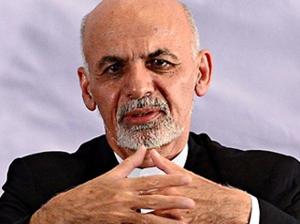 The story of a Pakistani supermodel, $500,000 and a murky world of fashion-politician nexus The story of a Pakistani supermodel, $500,000 and a murky world of fashion-politician nexus
6 April 2015
The arrest of Pakistan’s top supermodel on charges of money-laundering has exposed a nexus between the country’s fashion industry and the moneyed class, media reports said, a case which has shades of neighbouring India’s fight against black money stashed abroad.
The model, known simply as Ayyan, was arrested last month in Islamabad when she was trying to board a plane to Dubai with US $500,000 (approximately 3.2 crore in Indian rupees), allegedly given to her by political heavyweights or businessmen.
What has made the case murkier was an attempt to assassinate her father last week with the reports saying that Ayyan’s family-members were aware of her taking huge sums of money abroad, given to her by political heavyweights and top businessmen who used her services to stash cash abroad.
Like India, corruption is endemic in Pakistan and the country’s ultra-rich are suspected of hoarding crores of Pakistani rupees in banking safe havens across the world.
The BJP government led by Prime Minister Narendra had rode to power last May with the promise of bringing back crores of rupees suspected to be lying in foreign banks.
The opposition Congress, however, accuses the government of failing to keep its promise.
A model case
Media reports in Pakistan said that Ayyan, 23, – now lodged at the Adiala jail in Rawalpindi – was a frequent traveller to London, Germany, Romania, Italy and France besides Dubai and Abu Dhabi.
In a highly conservative country where women’s roles are very limited, Ayyan is an exception. Starting her modelling career when she was barely 16, she became a supermodel very soon and was a regular in the ramps of Europe and Asia till her arrest.
However, she had not participated in the domestic fashion scene since last April, the reports said.
Also said to be pursuing a singing career, several of her videos are still found on Youtube.
The reports said quoting investigators that she named several politicians and businessmen who used to send money abroad through her.
Media reports also quoted her father as saying, “I was shot by those who own the money recovered from Ayyan.”
In found guilty, she could face a jail term of up to 14 years.
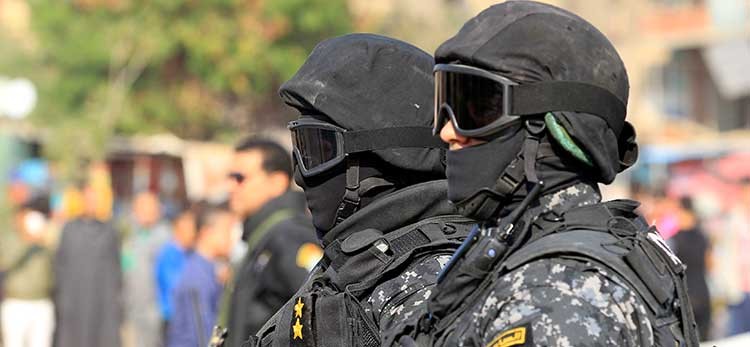 White House goes on offense in selling Iran nuclear deal to Congress White House goes on offense in selling Iran nuclear deal to Congress
4 April 2015
Washington,Now that President Barack Obama has the framework of a nuclear deal with Iran, the White House attention shifts to the challenging task of selling this agreement to Congress, and the administration is already deploying its troops.
"In just the last 24 hours we've had everybody from the President to the White House chief of staff, to officials at the Department of State and the Department of Defense briefing members of Congress to make sure they understand exactly why we believe this is a framework agreement that puts us on the path of making sure that we're preventing Iran from obtaining a nuclear weapon and putting in place inspections to verify that that's actually the case," White House spokesperson Josh Earnest told CNN on Friday.
Obama and House Speaker John Boehner spoke by phone Thursday afternoon, according to a Boehner aide. Other officials making calls to lawmakers on both sides of the aisle include National Security Adviser Susan Rice, U.N. Ambassador Samantha Power, Deputy National Security Adviser Avril Haines and Deputy Secretary of State Tony Blinken, a White House official told CNN.
Colin Kahl, national security adviser to the vice president who was traveling with the President, did a conference call with dozens of American Jewish leaders Thursday evening to talk about the framework deal reached with Iran, a participant told CNN.
The participant said it wasn't contentious. "There were definitely pointed questions, but it was very respectful," the source told CNN.
Kahl repeatedly said sanctions will not be lifted until there is a "demonstration of measurable compliance," Kahl said, according to the participant.
White House readies Iran nuclear deal sales pitch to skeptical Congress
Blinken said Friday on CNN that he had already talked to Sen. Bob Corker (R-Tennessee), who put forward legislation requiring a 60-day congressional review of any nuclear deal.
The Senate Foreign Relations Committee is set to vote on Corker's legislation April 14, and the White House has said the President would veto the bill if passed -- but that's not the only potential challenge coming from Congress.
A separate bill proposed by Sen. Bob Menendez (D-New Jersey) and Sen. Mark Kirk (R-Illinois) would impose further financial sanctions against Iran.
Menendez promised to delay any vote until after the initial negotiations deadline of March 31. After Thursday's framework was announced, he pushed for the congressional oversight included in Corker's bill.
Menendez's exact role in congressional development is in question now that he stepped down from his committee position while facing bribery charges.
The White House has emphasized that Congress has the final say on lifting economic sanctions and should play an oversight role.
But White House officials have also warned that congressional action forcing the United States to walk away from the deal would fracture the international community and leave Iran in an even stronger position, with very little limiting their nuclear program.
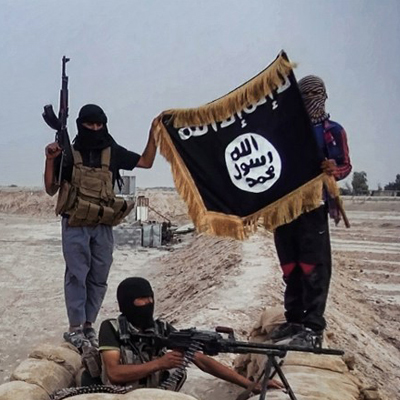 Women's Group Gets North Korea Support to Walk Across DMZ Women's Group Gets North Korea Support to Walk Across DMZ
4 April 2015
North Korea has decided to support a proposed walk across the demilitarized zone between the two Koreas by prominent women including Gloria Steinem, and organizers say they hope South Korea will give its approval as well.
Co-organizer Christine Ahn told The Associated Press that North Korea gave permission this week after she visited Pyongyang.
The walk proposed for May 24 is a call for reunification of the two countries.
The DMZ is the world's most fortified border, with the two Koreas still technically at war.
The walk would mark the 70th anniversary of the division of the Korean Peninsula.
The walk would include two Nobel Peace laureates, and Ahn says North Korean women will walk with the group from Pyongyang to the DMZ.
 What the nuclear deal means for Iran and the West What the nuclear deal means for Iran and the West
3 April 2015
After months of negotiations, Iran and key world powers have agreed on the framework of a landmark deal that is aimed at addressing Western concerns about Tehran’s nuclear programme.
The “Joint Comprehensive Plan of Action” – described by US President Barack Obama as a “good deal” that meets core objectives – is aimed at getting Iran to reduce its stockpile of low-enriched uranium by 98% and scale back the number of installed centrifuges.
In exchange, the US and the European Union will lift sanctions that have crippled Iran’s economy for decades.
Iran’s “breakout timeline”, the time it would take for the country to acquire enough fissile material for a weapon, is currently assessed to be two to three months. Under the framework, this will be extended to at least one year for a period of at least 10 years.
Some of the key parameters of the deal, which has to be finalised by June 30, are given below:
Enrichment
Iran's enrichment capacity, enrichment level and stockpile will be limited for specified durations, and there will be no enrichment facility other than the one at Natanz. Iran's research and development on centrifuges will be carried out at a level and schedule that has been mutually agreed.
A US fact sheet said Iran had agreed to reduce by approximately two-thirds its installed centrifuges, going from 19,000 installed centrifuges to 6,104, with only 5,060 of these enriching uranium for 10 years.
The US also said Iran had agreed to not enrich uranium over 3.67% for at least 15 years and that Tehran would reduce its current stockpile of 10,000 kg of low-enriched uranium to 300 kg of 3.67% LEU for 15 years.
Excess centrifuges and enrichment equipment will be placed in IAEA-monitored storage and be used only as replacements.
The underground enrichment facility at Fordow, near the city of Qom, will be converted so that it is no longer used to enrich uranium for at least 15 years. The facility will be used for peaceful purposes as a nuclear, physics, technology and research center and there will be no fissile material at Fordow.
Iran will not use its advanced centrifuges, such as the IR-2, IR-4, IR-5, IR-6, or IR-8 models, to produce enriched uranium for at least 10 years. Iran will only engage in limited research and development with these advanced centrifuges.
Inspections and transparency
The IAEA will have regular access to all of Iran’s nuclear facilities, including the enrichment facilities at Natanz and Fordow, and with the use of modern monitoring technologies.
IAEA inspectors will have access to the supply chain for Iran’s nuclear programme and monitor materials and components to prevent diversion to a secret programme.
They will also have access to uranium mines and surveillance at uranium mills where Iran produces yellowcake, a type of uranium concentrate powder, for 25 years.
A dedicated procurement channel for Iran’s nuclear programme will be established to monitor and approve, on a case by case basis, the supply, sale, or transfer to Iran of nuclear-related and dual use materials and technology.
Iran has agreed to implement the Additional Protocol of the IAEA, providing the IAEA greater access and information regarding its nuclear programme, including both declared and undeclared facilities.
Iran will implement an agreed set of measures to address IAEA’s concerns about the “Possible Military Dimensions” of its nuclear programme.
Reactors and reprocessing
According to the US, Iran agreed to redesign and rebuild a heavy water research reactor in Arak, based on a design that is agreed to by Western powers, so that it will not produce weapons-grade plutonium and support only peaceful research.
The reactor’s original core, which would have enabled production of significant quantities of weapons-grade plutonium, will be destroyed or removed from Iran.
The US also said Iran had “committed indefinitely to not conduct reprocessing or reprocessing research and development on spent nuclear fuel”.
Sanctions
The US has said Iran will receive “sanctions relief if it verifiably abides by its commitments”. The US added: “Important implementation details are still subject to negotiation, and nothing is agreed until everything is agreed.”
Nuclear-related sanctions of the US and EU will be suspended after the IAEA has verified that Iran has taken all the key nuclear-related steps. “If at any time Iran fails to fulfill its commitments, these sanctions will snap back into place,” the US said.
But US sanctions on Iran for terrorism, rights abuses and ballistic missiles will remain in place.
All past UN Security Council resolutions on the Iran nuclear issue will be lifted once Tehran acts to address key concerns on enrichment, transparency, the Fordow and Arak facilities and Possible Military Dimensions of its nuclear programme.
However, Iran’s foreign minister Mohammad Javad Zarif, without naming the US, described the fact on the framework as “spin”.
“The solutions are good for all, as they stand,” he tweeted. “There is no need to spin using ‘fact sheets’ so early on.”
Though Zarif did not refer to the US by name, no other member of the P5+1 negotiating group, which comprises the US, Britain, France, Russia, China and Germany, had issued a similar fact sheet.
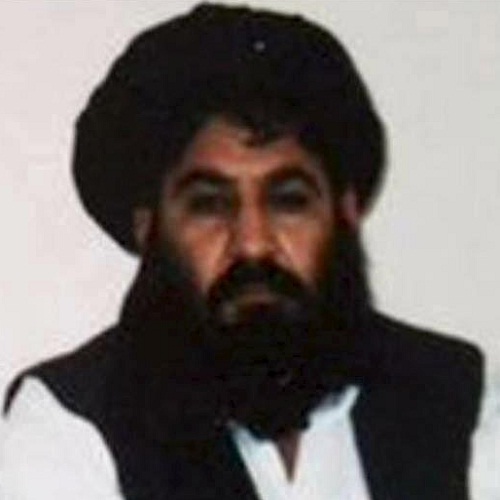 By 2050, India to surpass Indonesia, will have largest Muslim population: Study By 2050, India to surpass Indonesia, will have largest Muslim population: Study
3 April 2015
WASHINGTON: Hindus will become the world's third largest population by 2050, while India will overtake Indonesia as the country with the largest Muslim population, according to a new study.
According to the Pew Research Center's religious profile predictions assessed data released on Thursday, the Hindu population is projected to rise by 34 per cent worldwide, from a little over 1 billion to nearly 1.4 billion by 2050.
By 2050, Hindus will be third, making up 14.9 per cent of the world's total population, followed by people who do not affiliate with any religion, accounting for 13.2 per cent, the report said.
The people with no religious affiliation currently have the third largest share of the world's total population.
Muslims are projected to grow faster than the world's overall population and that Hindus and Christians are projected to roughly keep pace with worldwide population growth, the report said.
"India will retain a Hindu majority but also will have the largest Muslim population of any country in the world, surpassing Indonesia," it said.
"Over the next four decades, Christians will remain the largest religious group, but Islam will grow faster than any other major religion," according to the report.
The report predicted that by 2050 there will be near parity between Muslims (2.8 billion, or 30 per cent of the population) and Christians (2.9 billion, or 31 per cent), possibly for the first time in history.
There were 1.6 billion Muslims in 2010, compared to 2.17 billion Christians.
"The number of Muslims will nearly equal the number of Christians around the world," it added.
If the trend continues, Islam will be the most popular faith in the world after 2070, it said.
By 2050, Muslims will make up about 10 per cent of the Europe's population, up from 5.9 per cent in 2010.
Over the same period, the number of Hindus in Europe is expected to roughly double, from a little under 1.4 million (0.2 per cent of Europe's population) to nearly 2.7 million (0.4 per cent), mainly as a result of immigration, it said.
In North America, the Hindu share of the population is expected to nearly double in the decades ahead, from 0.7 per cent in 2010 to 1.3 per cent in 2050, when migration is included in the projection models. Without migration, the Hindu share of the region's population would remain the same.
Buddhism is the only faith that is not expected to increase its followers, due to an ageing population and stable fertility rates in Buddhist countries, such as China, Japan and Thailand.
The projections considered fertility rates, trends in youth population growth and religious conversion statistics.
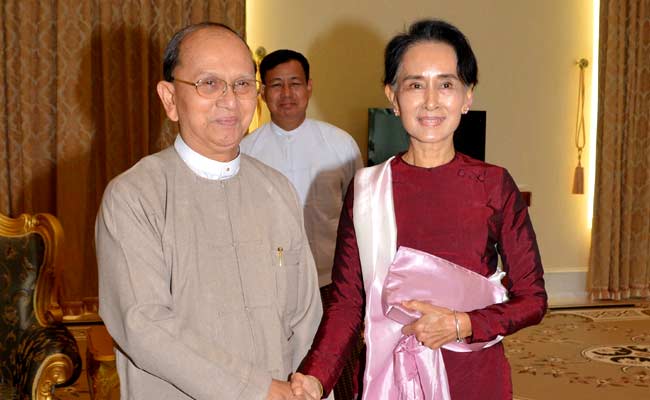 Dozens of crew members killed after Russian freezer trawler sinks off the east coast in sub-zero temperatures Dozens of crew members killed after Russian freezer trawler sinks off the east coast in sub-zero temperatures
2 April 2015
A freezer trawler has sunk in a peninsula off the coast of Russia, killing at least 54 crew members.
A massive rescue operation involving more than 1,000 people is now underway after the ship, carrying an international crew of 132, sank in the Sea of Okhotsk.
Investigators say they think the boat, called the Dalny Vostok, may have collided with drifting ice while sailing in the Kamchatka Peninsula.
More than 26 fishing boats in the area have helped to rescue members of the crew, but have also recovered 54 bodies.
The disaster happened at around 4am local time, and the trawler did not send any distress signals before it sank, the Interfax News Agency said.
The Investigative Committee said in a statement that it is considering all theories but it is likely that the ship hit 'an object' floating in the sea.
Early reports add that the Dalny Vostok sank in just 15 minutes, after its engine compartment had been flooded.
So far 63 people have been rescued, with survivors suffering from hypothermia and other injuries being airlifted to hospital. At the latest count there are 15 people still missing.
The Russian Emergencies Ministry sent an Mi-8 helicopter with rescuers and doctors aboard to treat and transport rescued crew members to hospitals in the city of Magadan, it said on its website.
A telephone hotline for families of the crew has also been set up.
Among the 132 crew members, 78 are from Russia, 42 from Myanmar and the rest from Latvia, Ukraine and Vanuatu.
Some 1,300 people are involved in the ongoing rescue operation, emergency services said.
The Sea of Okhotsk is the coldest sea in East Asia with the air temperature plummeting to -20 degrees Celsius in the winter months.
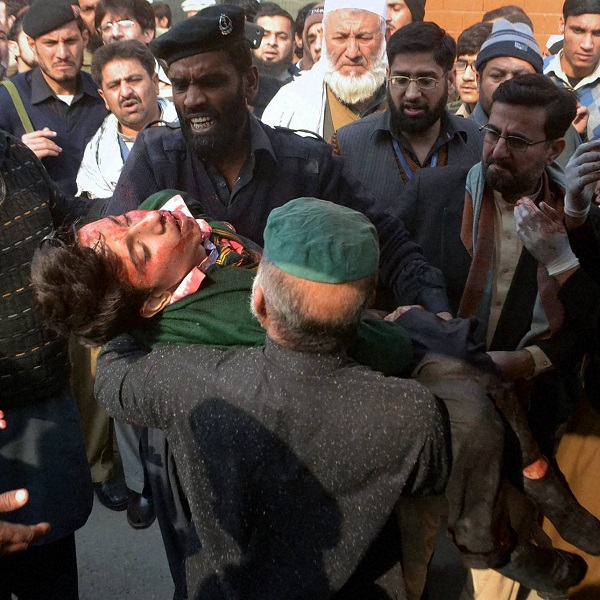 From brides to battlefield, women taking up new roles with Islamic State From brides to battlefield, women taking up new roles with Islamic State
2 April 2015
Women travelling to join Islamic State militants are no longer just seeking to become "jihadi brides" but are taking on new roles, on the frontline in logistics and intelligence and as medics, according to military and expert sources.
Female presence in Islamic State's battles to establish a medieval-style caliphate across the Middle East has been unusual with the radical Sunni Islamists imposing strict restrictions on women's dress and behaviour and deeming their role as domestic. But as more foreigners, both male and female, go to join or fight Islamic State, the traditional role of women is being challenged, with reports of women working at hospitals controlled by Islamic State and aiding in logistics.
Colonel Rafat Salim Raykoni, head of a military intelligence unit in the Iraqi Kurdish peshmerga forces battling Islamic State militants, said women fighters had emerged around the town of Sinjar, a frontline in the fight in northern Iraq. "They are not many but they are starting to arrive on the frontline. Here in Sinjar they are very active," he told the Thomson Reuters Foundation in the peshmerga headquarters in the outskirts of Sinjar city.
Raykoni is not the only one to have spotted the trend with high ranking commanders in different areas of Iraq and Syria reporting Islamic State women around the battlefield although so far no female militants have been reported killed. Pareen Sevgeen, the commander of a Kurdish women militia in Iraq, YJA Star, who is also known by her nom de guerre Beritan, was fighting north of Sinjar earlier this year when her brigade intercepted communications of the jihadis.
"We heard a woman giving order to men. She was saying move there or here, go left or right. She was obviously a commander," said Beritan while sitting in her compound outside Sinjar dressed in a dark green military uniform.
Women in a new role
YJA Star, which also campaigns for gender equality in the region, was able to re-take the area within hours and they never heard from the woman again despite making inquiries.
"We looked for her because we wanted to know more. We know she is a foreigner by the way she was talking on the radio. Arabic is not her first language. Our sources on the other side told us she is from India."
The Canadian counterterror research group iBRABO, late last year said they had identified one woman who travelled from Canada to Islamic State frontlines, giving away her locations on Twitter as she visited besieged cities in Syria and Iraq.
Tracking her mobile phone's geo-tagging function on Twitter, the group concluded her movement "reflects a broader trend of women becoming more active in supporting male jihadists, such as intelligence collection, implementation and adherence to Sharia Law, and even reported execution of punishments to women judged to be in transgression of Sharia Law".
Jayne Huckerby, director of the International Human Rights Clinic at Duke University's School of Law, North Carolina, was not surprised about women appearing on the frontline as thousands of foreign recruits join the fight.
The London-based International Centre for the Study of Radicalisation and Political Violence (ICSR) estimates at least 20,000 foreigners have joined the Syria/Iraq conflict of which about 4,000 are Western citizens. The Institute for Strategic Dialogue estimates about 550 of these are women.
ICSR director Peter Neumann has said about 80 percent of foreign fighters from Western nations are joining Islamic State in Syria and Iraq, drawn by its ideological appeal and savvy outreach in foreign languages and over the Internet.
Islamic State seized large sections of north and west Iraq and much of eastern Syria last year and the Iraqi government, with its Western and Iranian allies, is now trying to recapture the nearly one-third of Iraq under the jihadists' control.
Brides and battles
So far most attention about the role of women in the conflict has focused on those joining as "jihadi brides". In one of the most high-profile recent cases, three British schoolgirls are thought to have travelled through Turkey to Syria in February to join the militant group. Their families and British authorities have made repeated appeals for them to return home.
But four of nine British medical students who were believed to have crossed into Islamic State-held areas this month were also reported to be female with their parents are trying to convince them to come home. "We are providing consular assistance to families of British nationals who are believed to be missing after travelling to Turkey," a Foreign Office spokesman said without giving any further details of the students who were studying in Sudan.
The Home Office has said the medics would not automatically face prosecution under anti-terror laws if they returned to Britain as long as they could prove they had not been fighting for Islamic State. Huckerby said the evidence challenged the Western stereotype of women just wanting to be "jihadi brides" and was an important evolution in the group's view on the women in the caliphate.
"A number of Western women who travelled to (Islamic State)have expressed their willingness to fight and to be in combat. They want to become Jihad Jane types," said Huckerby. She said this shift was flagged in a recent manifesto by Islamic State's all-female Al-Khansaa Brigade whose mission is to pursue and arrest women who break the group's strict rules on Islamist morality.
This manifesto, translated by the London-based think-tank the Quilliam Foundation, maintained that women are permitted to abandon their domestic roles for jihad "if the enemy is attacking her country and the men are not enough to protect it and the imams give a fatwa for it".
There are precedents of women fighting in the Islamic world, said David Romano, a political science professor at Missouri University and expert on women fighters. He pointed to the Moscow theatre hostage crisis of October 2002 when at least 170 people were killed including 40 male and female attackers claiming allegiance to an Islamist militant separatist movement in Chechnya.
About 140 kms (87 miles) northeast of Sinjar, on the battlefield around Teleskuf, peshmerga general Wahid Koveli, head of a Special Forces First Division, has also heard Islamic State female fighters on the radio at least twice. "Female fighters have started to arrive on the frontline. It might means that (Islamic State) are in difficulties and they are starting to use everybody to help them fight," he said.
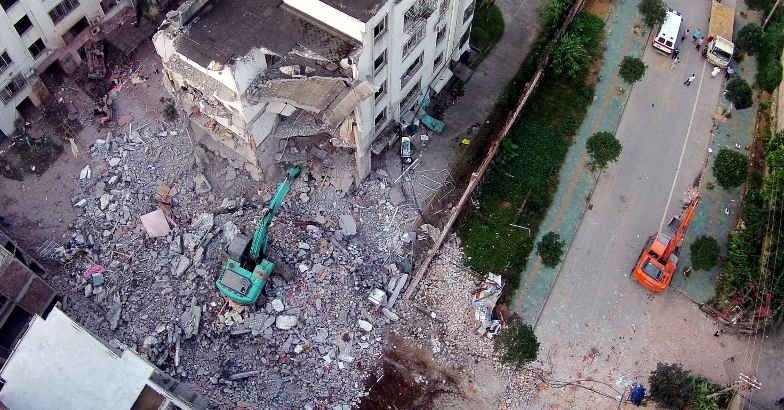 21 questions on Iran nuclear talks: What's going on? What's at stake? 21 questions on Iran nuclear talks: What's going on? What's at stake?
1 April 2015
Talks aimed at reaching a deal over Iran's nuclear program are going down to the wire.
The stakes are huge -- for Iran, the United States, Israel, the wider Middle East and beyond.
Will the negotiations result in a deal that sets relations between Iran and the West on a more stable path? Or will they end in disarray and disappointment, bringing fears of confrontation down the road?
Here are answers to some of the key questions about this pivotal point.
1. What do world powers want?
They aim to restrict Iran's nuclear program to prevent Tehran from developing an atomic bomb. The countries negotiating with Iran are the United States, the United Kingdom, France, Russia, China and Germany.
2. What does Iran want?
Iran is desperate to get rid of the sanctions that have stifled its economy for years. But it also wants to keep hold of as much as it can of its nuclear program, which it insists is for peaceful purposes.
3. What's the deadline?
After years of tortuous negotiations, the parties had set a deadline of the end of Tuesday in Lausanne, Switzerland, to reach a framework agreement -- a political understanding on the main principles of a deal. But in the final hours, the United States said the talks would continue into Wednesday.
4. What happens if a deal is reached?
Negotiators move on to the next phase. They'll have until the end of June to thrash out all the technical details, building on the framework to make it a comprehensive deal. That's no formality: Some of the trickiest issues could get left for the final phase.
5. How will it play out around the globe?
Israel, which has voiced strong opposition to the emerging agreement, is likely to aggressively protest a deal. Other U.S. allies in the region, like Saudi Arabia, may also be unhappy. U.S. President Barack Obama will face opposition to the deal from Congress, which has threatened more sanctions against Iran. Hardliners in Iran are expected to attack the deal for being too restrictive.
6. So, will a deal survive the political fallout?
It's too early to say. Richard Haass, president of the Council on Foreign Relations, says he expects the bigger political battle over the deal to take place in the United States. "Iran is an authoritarian system. At the end of the day, if the Supreme Leader wants this deal, he gets it," Haass told CNN. "President Obama, whatever his critics think, is not a supreme leader. He's going to have much more trouble selling it here."
7. What if there's no deal?
Things could get even more hairy. You can expect more sanctions on Iran, which would continue on its path of nuclear development. That's likely to prompt other nations in the Middle East to pursue nuclear programs. In the United States and Israel, talk would resume about the possibility of bombing Iranian nuclear sites. "These are obviously wildly unattractive alternatives," Haass said. "We're not looking to have another war. We don't want to see a Middle East, as bad as it is, get even worse with nuclear weapons under multiple hands of control."
8. What kind of deal is expected to emerge?
World powers are seeking the outlines of an agreement they say would prevent Iran from obtaining a nuclear weapon for at least 15 years. In exchange, Iran would get relief from the damaging sanctions. But what exactly will be announced remains fuzzy. Officials have been vague about the format the framework deal might take, as well as how much of it will be made known to the public and international stakeholders.
9. What are the main sticking points in the talks?
Talks are believed to have gotten snagged on a number of key points. Chief among them are the pace at which the U.N. sanctions on Iran will be lifted and how much nuclear research and development Iran will be allowed to do while the deal is in effect. Tehran would like the sanctions removed as soon as a deal is signed, but Washington and other powers say the sanctions need to be lifted in phases and be able snap back into place if the Iranians fail to comply. Iran also wants to be allowed to develop more advanced centrifuges while the deal is in effect. U.S. and European officials worry that could enable Iran to quickly produce enough material for a nuclear weapon.
10. What are centrifuges?
Tube-shaped machines that use centrifugal force to turn natural uranium into highly enriched uranium, the key ingredient needed to make a nuclear bomb. Iran has about 18,000 centrifuges, 10,000 of which are still spinning today. Under a deal, the country would likely have to cut down the number of centrifuges it uses to about 6,000.
11. What about Iran's nuclear stockpile?
That's another unresolved issue -- what happens to Iran's existing stockpile of enriched uranium? The United States and its Western allies fear Iran could rush to enrich that uranium to levels high enough to make a nuclear bomb. One plan under discussion was for the stockpile to be shipped out of Iran, turned into material that works as fuel but not as a weapon and then sent back. An Iranian official said Sunday that Tehran wouldn't agree to its stocks being taken out of the country. U.S. officials denied suggestions Iran was backing off from a previous agreement on the issue. "This is a remaining issue that we have to resolve but hasn't, quite honestly, been one of the toughest ones," U.S. State Department spokeswoman Marie Harf said.
12. How will we know Iran is living up to its side of any deal?
The general view among nuclear experts and officials from various countries is that Iran would need to be subjected to a rigorous inspections regime to make sure that it sticks to the deal. "We are likely to get from this deal one of the most intrusive inspection regimes ever put in for any agreement of this type," said Joseph Cirincione, the president of Ploughshares Fund, a global peace and security foundation. "All of this would be supervised by international inspectors."
13. What if some nuclear sites are kept secret?
International inspectors have access to all Iran's declared nuclear facilities, but there's a big concern that Iran could also be advancing its nuclear ambitions at hidden sites. That's what's prompting calls for extremely intrusive inspections that would allow international monitors to travel throughout Iran and gain access to any facility. But that's unappealing to Iran, which already says it's being treated differently from other countries that have faced inspections. Western countries say Tehran deserves special treatment after having repeatedly attempted to cheat previous accords and hide nuclear facilities.
14. What if Iran doesn't honor the deal?
If world powers have their way, the sanctions would snap back into effect. Beyond that, it would depend on the nature of Iran's breach and what measures are in place for dealing with it. If the agreement unravels completely, the United States and its allies would be faced with difficult choices over what steps to take to curtail Iran's nuclear program. Calls for a military approach would make a comeback. There would, in theory, be some breathing space. World powers are aiming to make sure Iran would need at least a year to build a bomb, should it "break out" of the deal.
15. Why is Israel opposing a deal?
Israel sees Iran as an existential threat. Israeli Prime Minister Benjamin Netanyahu said over the weekend that the deal he believes is taking shape is "fulfilling our deepest fears and even worse." Israel says it has the most to lose if Iran, which refuses to recognize Israel's right to exist, develops a nuclear bomb. Tehran has supported armed groups that have engaged in direct conflict with Israel, like Hezbollah and Hamas. But Netanyahu's strong opposition has severely strained relations with the White House.
16. Who else is skeptical?
Saudi Arabia. It's a majority Sunni Muslim country. Iran is overwhelmingly Shiite Muslim. Saudi Arabia, like Israel, is troubled by Iran's growing clout in the Middle East. Analysts see the Saudis and Iranians as being engaged in a proxy war across the region, most recently in Yemen, where the Saudi military is carrying out airstrikes against Shiite rebels allied with Tehran. Saudi officials have expressed displeasure previously at the prospect of a deal between Iran and world powers.
17. How did Iran's nuclear program start?
The United States launched a nuclear program with Iran in 1957. Back then, the Shah ruled Iran and the two countries were still friends. With backing from the United States, Iran started developing its nuclear power program in the 1970s. But the United States pulled its support when the Shah was overthrown during the Islamic Revolution in 1979.
18. Is Iran the only nation with a nuclear program?
Eight nations are known to have nuclear weapons, including all the countries negotiating with Iran, with exception of Germany. Israel has always declined to confirm whether it has any, although the Federation of American Scientists estimates it has about 80 atomic weapons. It's unclear exactly what stage North Korea's nuclear weapons program has reached; the secretive East Asian nation has conducted three underground atomic tests.
19. Why have the other nations not faced as much scrutiny?
For nuclear-armed nations like India and Pakistan, no action was taken partly because they never signed the Treaty on the Non-Proliferation of Nuclear Weapons. "There was very little that the U.S. could've done to stop Pakistan," said Mark Hibbs, a nuclear policy expert at the Carnegie Endowment for International Peace. Iran, on the other hand, signed the treaty. And as a result, its program was put under the spotlight. In addition, the International Atomic Energy Agency had information suggesting Iran conducted activities it hasn't declared in the past.
20. Why is Iran's nuclear program considered such a threat?
Since the 1979 revolution, Western countries have worried that Iran could use its nuclear program to produce atomic weapons using highly enriched uranium. About a decade ago, international inspectors announced that they had found traces of highly enriched uranium at an Iranian plant in Natanz. Iran temporarily halted enrichment, but then resumed enriching again in 2006, insisting it was allowed under its agreement with the International Atomic Energy Agency. The prospect of an Iranian nuclear weapon stokes fears of a nuclear arms race across the already unstable Middle East. And then there's Tehran's longstanding antipathy toward Israel and the United States.
21. What would a military attempt to take out Iran's nuclear facilities look like?
It's uncertain how much of Iran's nuclear capability airstrikes would be able to take out. But the consequences would be dire. "People talk very cavalierly about these strikes. It's really appalling to me that this kind of discussion goes on," said Cirincione. "This is not a pinprick attack. This would be weeks of hundreds of U.S. sorties. This would be the beginning of a major war in the Middle East that would make the wars in Afghanistan and Iraq look like warm-up acts, and it would have regional consequences."
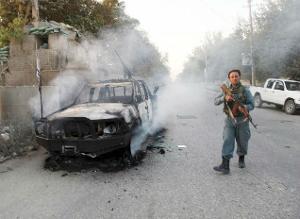 Turkish hostage situation: Prosecutor Mehmet Selim Kiraz and 'DHKP-C militants' who held him hostage die Turkish hostage situation: Prosecutor Mehmet Selim Kiraz and 'DHKP-C militants' who held him hostage die
1 April 2015
A chief prosecutor and two militant members of a banned communist group, who held him hostage inside a courthouse in Istanbul, have died according to police.
The men believed to be members of the banned Revolutionary People’s Liberation Party-Front (DHKP-C) took Mehmet Selim Kiraz hostage in the capital on Tuesday, in an act of revenge over the death of a teenager during anti-government protests in 2013 - which he was investigating.
After six hours of police negotiations, security forces entered the building when gunshots were heard from inside the prosecutor's office, said Istanbul's police chief Selami Altinok.
The attackers were shot dead by police and Mr Kiraz was severely wounded after being shot in the head during the rescue operation. He later died in hospital after undergoing surgery, the government and hospital officials announced.
The militants earlier posted pictures on social media of a gun being held to Mehmet Selim Kiraz’s head.
They threatened to shoot him unless authorities met their five demands, including forcing policemen believed to have killed the teenager to confess to the death, the Associated Press reported.
The group’s flag could be seen in the background as Mr Kiraz was held gagged and with his hands tied in front of him.
Speaking in Ankara, Turkish Prime Minister Ahmet Davutoglu revealed that the hostage takers have been identified, and said that they had dressed up as lawyers in order to sneak in arms inside the Çaglayan Justice Palace, thought to be the largest courthouse in Europe.
Deputy Chief Prosecutor Orhan Kapici confirmed that the incident was related to Kiraz's investigation into the boy's death.
According to a statement released on halkinsesi.tv, the militants gave authorities until 3.36 pm local time (1.36pm BST) to meet their demands - three hours after they stormed the court building.
But that deadline passed without a word from Turkish authorities about Mr Kiraz's wellbeing, until the latest statement by Altinok.
As evening fell, gunshots and explosions were heard as smoke rose from the building, a witness told Reuters.
Security forces were seen outside and an ambulance raced to a rear door, sirens blaring, the witness added.
Witnesses said shots were heard at the court house when Mr Kiraz was seized and special forces have since entered the building, which was evacuated and cordoned off.
“We were on the sixth floor. A black-haired man wearing a suit entered the prosecutor's room and fired a gun three times,” Mehmet Hasan Kaplan, who works in the building, adding that the attackers also claimed to have explosives.
Live coverage of the hostage crisis stopped on Turkish television on Tuesday afternoon when a ban was imposed by the government. It was reportedly one of more than 150 such gagging orders issued in the last four years.
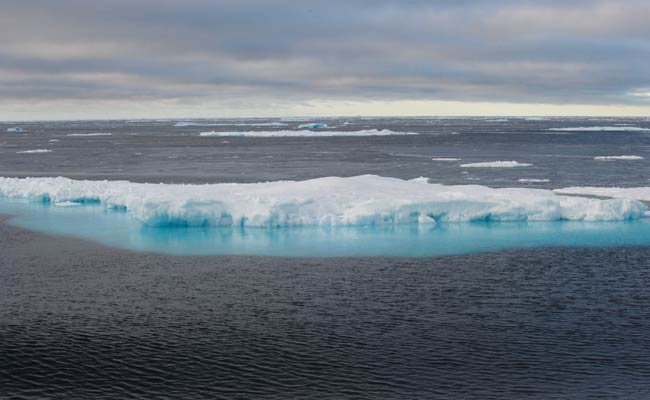 Potential 2016 candidates respond to Indiana law: They are falling for votes, not freedom Potential 2016 candidates respond to Indiana law: They are falling for votes, not freedom
31 March 2015
Freedom, particularly individual freedom has always been a hallmark of the US. But things are changing pretty fast. Now, many states are making laws that are discriminatory in nature and may give the present day US a look of medieval Europe.
This tendency, without doubt, is suicidal and it must be stopped right away. Merely the other day tim Cook in an edit page article in a leading daily said that there was a need to stand up against such laws. He was talking about Indiana’s recently introduced ‘Religious Freedom’ law. But to be true, such laws are not limited to Indiana. Many other states too are coming out with such laws.
Apple boss Tim Cook who is seen as a rare tech genius said, “These bills rationalize injustice by pretending to defend something many of us hold dear. They go against the very principles our nation was founded on, and they have the potential to undo decades of progress toward greater equality”.
He went on to blast such discriminatory law by saying, “America’s business community recognized a long time ago that discrimination, in all its forms, is bad for business. At Apple, we are in business to empower and enrich our customers’ lives. We strive to do business in a way that is just and fair. That’s why, on behalf of Apple, I’m standing up to oppose this new wave of legislation — wherever it emerges.”
But there are people who are backing such laws. This is particularly true of Republican leaders. They are backing Indiana’s Religious Freedom Restoration Act. Former Florida Gov. Jeb Bush, who is presidential hopeful says, “I think Governor Pence has done the right thing…There are many cases where people acting on their conscience have been castigated by the government…This is really an important value for our country, in a diverse country,where you can be tolerant of people’s lifestyles but allow people of faith to exercise theirs”. It seems that everything that can get him a few extra votes is a great thing.
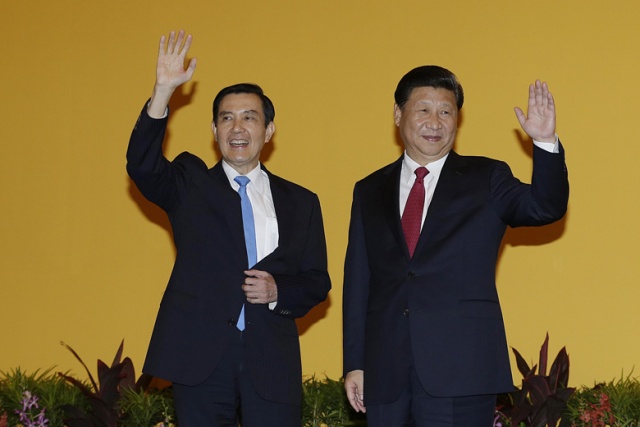 Buhari Leads in Nigeria Presidential Vote as Protests Endure Buhari Leads in Nigeria Presidential Vote as Protests Endure
31 March 2015
Former Nigerian military ruler Muhammadu Buhari took a lead in the presidential race with half of the 36 states reporting results from the March 28-29 general elections.
Buhari led with 54.6 percent of the vote to 41.6 percent for President Goodluck Jonathan with tallies from 18 states and the Federal Capital Territory, the Independent National Electoral Commission said in Abuja. Five states that Buhari lost to Jonathan in 2011 swung in his favor. Many areas from Jonathan’s stronghold in the southeastern part of the country haven’t reported.
The election, a key test of stability in Africa’s largest oil producer, pitted Jonathan, a 57-year-old southern Christian, and his People’s Democratic Party, against Buhari, a 72-year-old northern Muslim, and 12 other candidates, none of whom garnered more than 0.2 percent of the vote.
“This is the first time when a political challenger looks like he’s going to pull off a fairly convincing victory,” Nicholas Spiro, managing director of Spiro Sovereign Strategy in London, said by phone. “If he doesn’t, that is going to increase scope for what could be a very nasty post-election period.”
The authorities in Rivers state declared a dusk-to-dawn curfew to prevent protests by supporters of Buhari’s All Progressives Congress who say the election in the oil-producing area was rigged on behalf of Jonathan. Results announced by the Rivers state electoral officer John Etu-Efeotor in Port Harcourt showed Jonathan winning by a margin of 1.48 million votes to 62,238 for Buhari. The APC rejected the result, as well as the tallies in Akwa Ibom and Imo states.
‘Disturbing’ Indications
In the northern city of Bauchi, demonstrators came out in defiance of a 24-hour curfew that they said was imposed to rig the vote on behalf of Jonathan.
There were “disturbing” indications that the collation process, where votes are finally counted, may be subject to deliberate political interference, U.S. Secretary of State John Kerry and U.K. Foreign Secretary Philip Hammond said in a joint statement on Monday. The U.S. and U.K. governments would be very concerned at any attempts to undermine independence of the electoral commission and its chairman Attahiru Jega, they said.
A coalition of civil-society groups monitoring the election, known as the Situation Room, said in a statement on Monday it’s received reports of politicians trying to use Nigeria’s national security agencies to interfere with the vote-counting process.
About 56 million of the 68.8 million registered voters were issued cards that enabled them to cast ballots.
Protest Threat
To win, a presidential contender must take at least 50 percent of the total vote while winning a quarter of the ballots in a minimum of 24 of the 36 states. If none of the 14 candidates secure such a victory, a run-off would be held within seven days after the results are announced.
The PDP has governed Nigeria since the army relinquished power in 1999.
“If Buhari loses you can expect very serious protests in the north,” Nnamdi Obasi, senior Nigeria analyst at the Brussels-based International Crisis Group, said by phone from Port Harcourt. “He has a very large cult following.”
An observer mission from the European Union said Monday that while there were logistics and communications problems in the vote at the weekend, there was no evidence of a systematic manipulation of the process. Its conclusions largely echoed those from United Nations and African monitors.
Boko Haram
The election took place against the backdrop of a six-year insurgency waged by the Islamist militant group, Boko Haram, and a plunge in the price of oil, Nigeria’s biggest export.
Fitch Ratings cut Nigeria’s credit-rating outlook to negative on Monday, citing the drop in oil prices and the tight election contest, while affirming the country’s BB- rating, three steps below investment grade.
The naira was unchanged at 199.10 per dollar at 5:10 p.m. on Monday in Lagos. The Nigerian Stock Exchange All Share Index rose 1.7 percent. Yields on the nation’s $500 million of Eurobonds due July 2023 fell 3 basis points to 6.5 percent, the lowest since Dec. 10.
Nigerian equities rose to a near three-week high as isolated incidents of violence spurred investors to take advantage of the cheapest stocks in Africa before final results from presidential and legislative elections are tallied.
The vote was extended for a second day on Sunday at about 300 of the more than 100,000 polling points, where the late arrival of officials and faulty biometric voter-card readers caused delays on March 28.
Incompetent Government
Buhari’s party has painted Jonathan’s government as corrupt, incompetent and incapable of defeating Boko Haram, which has killed at least 1,000 people this year, according to Human Rights Watch. The PDP says Buhari is too old and human rights abuses were rife during his tenure.
“I can say without an iota of doubt that Nigerians across religion, across regional divisions, across class have actually understood the fact that the ruling class has messed up the country,” Habu Mohammed, professor of political science at Bayero University in Kano, said by phone. “This is a kind of a silent revolution in Nigerian politics, where people are looking at it from the context of issues-based politics.”
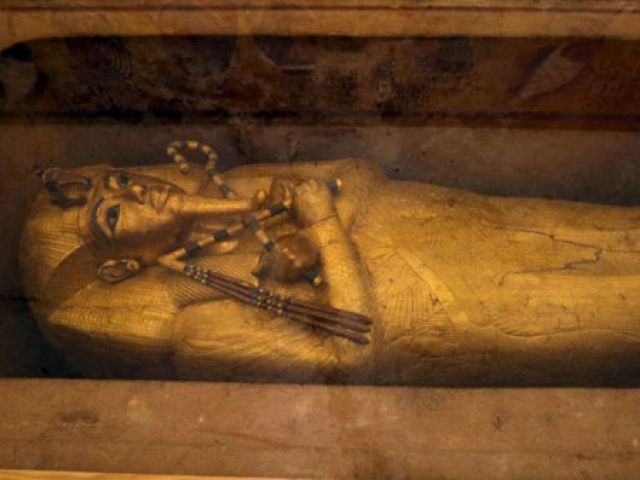 Papua New Guinea earthquake: Pacific on tsunami alert following giant magnitude 7.7 tremour Papua New Guinea earthquake: Pacific on tsunami alert following giant magnitude 7.7 tremour
30 March 2015
The Pacific is on tsunami alert was issued after a huge magnitude 7.7 earthquake hit Papau New Guinea.
The epicenter of the 33 km (22 mile) deep tremour was near the town of Rabaul in the northeast of Papua New Guinea.
The quake made "hazardous tsunami waves possible for coasts located within 1,000 km (620 miles) of the earthquake epicentre along the coasts of Papua New Guinea and the Solomon Islands," the Pacific Tsunami Warning Center (PTWC) in Hawaii said.
Tsunami waves reaching 1-3 meters (3-9 feet) above the tide level are possible along some coasts of Papua New Guinea, said the center.
No destructive, Pacific-wide tsunami was expected, it said.
"Persons located in threatened coastal areas should stay alert for information and follow instructions from national and local authorities," it added.
Rabaul, a town on East New Britain Island, lies in the shadow of Mount Tavurvur, an active volcano. Rabaul was destroyed in 1994 during a severe eruption.
Earlier this month a video emerged showing the devastating power of 'monster' Cyclone Pam, which left thousands on the Pacific nation of Vanuatu homeless.
The tropical storm tore through the chain of islands with wind speeds of up to 185mph, flattening whole villages as it ripped houses off their foundations and uprooted trees.
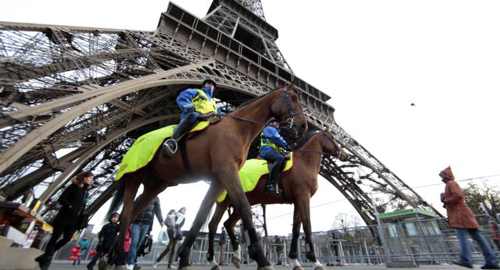 'We just kicked the doors out and ran' Air Canada passengers on crash-landing during snowstorm 'We just kicked the doors out and ran' Air Canada passengers on crash-landing during snowstorm
30 March 2015
The Airbus A320 crashed into a bank of antennas at Halifax's Stanfield International Airport, shearing off its main landing gear, nose cone, and an engine as it skidded on its belly.
The airline said 25 people were taken to hospital for observation and treatment for minor injuries. All but one were later released.
Flight AC624, which left Toronto late on Saturday night local time, with 133 passengers and five crew members, landed in stormy conditions at 12.43am yesterday.
"They touched down 1,100 feet short of the runway so I'd say they're pretty lucky," Mike Cunningham, a regional manager for Canada's Transport Safety Board, said.
Mr Cunningham said the plane hit an antenna array, shearing the main landing gear off before sliding on its belly on to the runway for another 1,100 feet before coming to a stop. There was significant damage to the plane and he could not rule out weather as a factor, he said.
He also said he believes a power line was severed, which led to a loss of power at the airport.
"All of us at Air Canada are greatly relieved that there have been no critical injuries as a result of this incident," airline chief operating officer Klaus Goersch said.
Transportation Safety Board pictures showed significant damage to the plane with the nose torn off and an engine crumpled under a damaged wing.
"This was not a hard landing. This was an actual crash," said Mike Magnus, 60, a businessman who was sitting in the first row.
"It was the closest I've ever came to death. There is no doubt in my mind. Obviously that's some political manoeuvring."
Mr Magnus said the snow covering the runway probably extinguished any sparks that might have caused the plane to catch fire.
Power initially went off at the airport and Nova Scotia Power later tweeted that it had been restored.
Airport spokesman Peter Spurway praised the crew and passengers for evacuating the plane within a minute.
"We just kicked the doors out and jumped on to the wing and then ran because we just wanted to get away from the airplane in case of explosions or anything," said Dominic Stettler, a father of three.
Some passengers complained they were left standing on the tarmac, some in their stocking feet, for up to 50 minutes as they were lashed by wind-whipped snow before buses arrived.
"People were just happy to be alive but after a while it got tiresome having to wait outside in the freezing cold. I only had a golf shirt on," Mr Magnus said.
Mr Spurway said the airport was reviewing its response.
The Halifax region was under a snowfall warning, with an Environment Canada alert saying: "Visibility may be suddenly reduced at times in heavy snow." Mr Goersch said, however, that the weather was appropriate for landing.
"It was safe to fly in this weather. The aircraft did circle for a period of time but when the approach was initiated, the weather was at the approach limits," he told a news conference. "The weather was appropriate for landing."
Randy Hall, who with his wife Lianne Clark were on their way home from a Mexican holiday, said he believed the jet hit a power line before it crash-landed. There were sparks but no fire, he said.
"We were just coming in to land and there was a big flash," said Mr Hall. "The plane came down, bang! It jumped up in the air again."
The aircraft skidded for a long time before coming to a stop, said Ms Hall. "We were sliding along on our belly. I was looking out and I saw the landing gear go and I saw an engine go."
Flight tracking site Flightradar24 listed several cancelled flights at the airport yesterday morning.
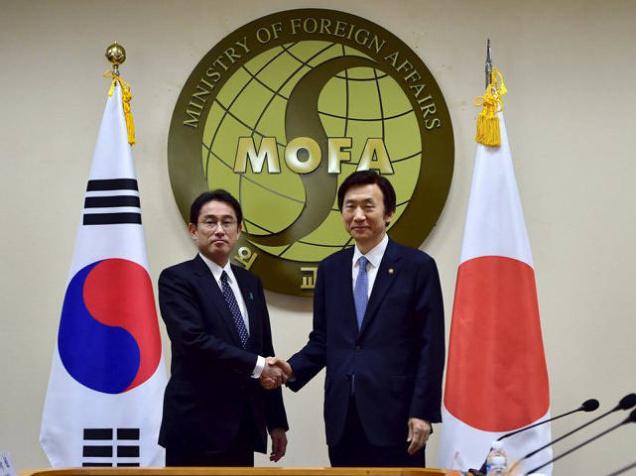 Germanwings crash: Co-pilot told ex-girlfriend 'one day everyone will know my name' Germanwings crash: Co-pilot told ex-girlfriend 'one day everyone will know my name'
28 March 2015
The Germanwings co-pilot who crashed his Airbus in the French Alps, killing all 150 aboard, told his ex-girlfriend that "one day everyone will know my name", according to German newspaper Bild.
In an interview, the 26-year-old flight attendant known as Maria W told Bild that when she heard about the crash she recalled Andreas Lubitz telling her last year: "One day I'm going to do something that will change the whole system, and everyone will know my name and remember."
The black box voice recorder indicates that Lubitz, 27, locked his captain out of the cockpit on Tuesday and deliberately flew Flight 4U 9525 into a mountainside, French officials say, in what appears to have been a case of suicide and mass killing.
French Prime Minister Manuel Valls said that all the signs were "pointing towards an act that we can't describe: criminal, crazy, suicidal".
German prosecutors revealed that searches of Lubitz's homes netted "medical documents that suggest an existing illness and appropriate medical treatment", including "torn-up and current sick leave notes, among them one covering the day of the crash".
They did not specify the illness.
According to Bild, the young woman, who was "very shocked", flew with Lubitz on European flights for five months last year, during which time they are believed to have been romantically involved.
If Lubitz did deliberately crash the plane, "it is because he understood that because of his health problems, his big dream of a job at Lufthansa, as captain and as a long-haul pilot was practically impossible", she told Bild.
The pair separated "because it became increasingly clear that he had a problem", she told the daily, adding that at night he would wake up and scream "we're going down" and was plagued by nightmares.
Bild earlier reported that Lubitz sought psychiatric help for "a bout of serious depression" in 2009 and was still getting assistance from doctors, quoting documents from Germany's air transport regulator.
Lufthansa CEO Carsten Spohr said that Lubitz had suspended his pilot training, which began in 2008, "for a certain period", before restarting and qualifying for the Airbus A320 in 2013.
50,000 euros per passenger
Half of the 150 victims of Tuesday's disaster were German, with Spain accounting for at least 50 and the remainder composed of more than a dozen other nationalities.
Germanwings said Friday it had offered the victims' families "up to 50,000 euros ($54,800) per passenger" towards their immediate costs.
The assistance, which the families would not be required to pay back, was separate from the compensation that the airline will likely have to pay over the disaster, a Germanwings spokesman told AFP.
A religious ceremony will take place Saturday morning at 10.30am (09:30 GMT) in the nearby town of Digne-les-Bains, police said.
Lubitz lived with his parents in his small home town of Montabaur in the Rhineland and kept an apartment in Duesseldorf, the city where his plane was bound from Barcelona.
Duesseldorf prosecutors said the evidence found in the two homes "backs up the suspicion" that Lubitz "hid his illness from his employer and his colleagues".
They said they had not found a suicide note, confession or anything pointing to a "political or religious" motive but added it would take "several days" to evaluate the rest of what was collected.
Reiner Kemmler, a psychologist who specialises in training pilots, noted that people "know that depression can compromise their airworthiness and they can hide it".
"If someone dissimulates, ie they don't want other people to notice, it's very, very difficult," Kemmler told Deutschlandfunk public radio.
Desperate captain used 'axe'
Lubitz locked himself into the cockpit when the captain went out to use the toilet, then refused his colleague's increasingly desperate entreaties to reopen the door, French prosecutor Brice Robin said.
According to Bild, the captain even tried using an axe to hack through the armoured door as the plane was sent into its fatal descent by Lubitz.
The tragedy has prompted a shake-up of airline safety rules.
The European Aviation Safety Agency (EASA) recommended Friday that at least two people be present in the cockpit of planes at all times, which is the standard in the United States.
German authorities agreed to the rule for Lufthansa, its subsidiary Germanwings and other companies.
Authorities in Germany, Austria and Portugal also announced that they would be requiring the adoption of the so-called "rule of two", which has been backed by Air France, KLM, Britain's easyJet, Brussels Airlines and Norwegian Air Shuttle, among other airlines.
Ireland's Ryanair, Finland's Finnair and Spanish carrier Iberia already adhere to the rule.
Meanwhile, the UN world aviation body stressed that all pilots must have regular mental and physical check-ups.
In the northwestern town of Haltern, which lost 16 students and two teachers on the flight, news that the co-pilot had apparently acted deliberately caused shock and anger.
German President Joachim Gauck, a Protestant pastor, attended a memorial service in the town Friday.
Meanwhile in Montabaur, Mayor Edmund Schaaf urged reporters camped out in the community to show restraint towards Lubitz's parents, a banker and a church organist who live on a leafy, normally quiet street.
"Regardless of whether the accusations against the co-pilot are true, we sympathise with his family and ask the media to be considerate," he said.
Investigators say Lubitz's intention was clear because he operated a button sending the plane into a plunge.
For the next eight minutes, Lubitz was apparently calm and breathing normally.
\
The second-in-command had passed all psychological tests required for training, Lufthansa's Spohr told reporters Thursday.
Recovery operations at the remote crash site were still ongoing, with French officials continuing to comb the mountain for body parts and evidence.
The plane's second black box, which records flight data, has not yet been recovered.
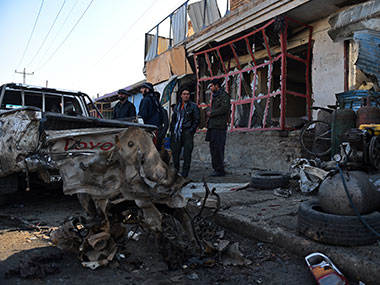 Crowds swell to bid farewell to Singapore's founder Lee ahead of funeral Crowds swell to bid farewell to Singapore's founder Lee ahead of funeral
28 March 2015
Thousands of people gathered in Singapore on Saturday to bid farewell to former leader Lee Kuan Yew in an unprecedented wave of sympathy after authorities had to temporarily suspend queues overnight to manage surging crowds.
The waiting time to enter Singapore's Parliament House where Lee's body was laying in state was as long as 6 hours just before midday on Saturday, a rare sight in a city where public gatherings are tightly controlled.
Mourners walked by Lee's coffin, draped with a Singaporean flag and flanked by five uniformed military officers, in silence. Many bowed. Some saluted. Others sobbed.
"In our lifetime this is probably the only person who will garner this kind of respect from everyone, so I think it’s something that we should do," said Ho Shaw Ming as he waited in line.
Lee, Singapore's first prime minister, died on Monday at the age of 91.
He is credited with transforming the city-state from a British colonial outpost into one of the world's wealthiest nations, with a strong, pervasive role for the state and little patience for dissent.
Commercial activity in Singapore, known for its shopping and food, is expected to slow significantly on Sunday. Several shopping mall owners and big stores such as Tangs and Metro said they would close on the day of the funeral.
The casino at Genting Singapore's Resorts World Sentosa will be closed on Sunday from 2 pm to 6 pm as a mark of respect, it said on its website.
Lee's funeral procession will begin at about 12.30 pm (0430 GMT) on Sunday and cover 15.4 km to the National University of Singapore, where funeral services will be held.
Asia-Pacific leaders including Japanese Prime Minister Shinzo Abe, Indian Prime Minister Narendra Modi, Australian, Prime Minister Tony Abbott, New Zealand Prime Minister John Key, Indonesian President Joko Widodo and South Korean President Park Geun-hye will be among those attending the services.
The number of visitors to Parliament House has exceeded 300,000, or 5 percent of Singapore's population, since the public viewing opened on Wednesday morning.
More than half a million visitors have flocked to 18 designated community tributes, writing messages of condolence and leaving flowers.
Prime Minister Lee Hsien Loong and his ministers visited the queues near the parliament house and community centres where people were lining up.
"I am deeply moved by the overwhelming response of people wanting to visit my father’s Lying in State at Parliament House," Lee said on his Facebook page.
With elections expected as early as later this year, it was unclear whether the wave of support for the country's founder would generate more votes for Lee's People's Action Party (PAP), which has ruled Singapore since independence.
Income inequality, resentment over immigration and expensive housing were among the issues which knocked the PAP's share of the vote down to 60 percent from 67 percent in elections four years ago.
"Don't expect sympathy votes for the PAP on account of the late Mr Lee," said Eugene Tan, associate professor of law at the Singapore Management University.
"The PAP instead has the unenviable task of unequivocally showing that they are noble and worthy successors to the late Mr Lee and his founding generation of leaders."
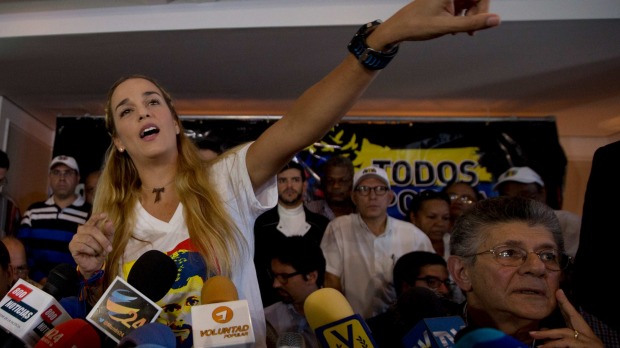 Germanwings crash fallout: Airlines adopt new cockpit rules Germanwings crash fallout: Airlines adopt new cockpit rules
27 March 2015
Airlines and policy makers rushed to mandate two crew members be in the cockpit at all times following revelations that the co-pilot of the doomed Germanwings flight deliberately crashed the plane when left alone at the controls.
British low-cost carrier easyJet was the largest company to announce a change in policy Thursday after French prosecutors said co-pilot Andreas Lubitz locked out the pilot before slamming the Airbus A320 into a mountain on Tuesday.
Similar announcements in the wake of the French Alps crash that killed all 150 people on board came from the Canadian government, Icelandair and Norwegian Air Shuttle.
Germany's aviation association BDL said it too wanted to introduce a two-person cockpit rule among its members, while Lufthansa said the measure would be discussed at an industry meeting on Friday.
The second person could be a flight attendant if the pilot or co-pilot has to exit the cockpit in flight.
Thomas Hesthammer, head of flight operations at Norwegian Air Shuttle, Europe's third-largest low-cost carrier, said the Alps disaster was the trigger for his company's change of procedure.
"We have been discussing this for a long time but this episode speeded things up," he said.
Icelandair said it too had been spurred to act by the shock revelations about the final minutes of Germanwings Flight 4U 9525 from Barcelona to Duesseldorf.
Canada also ordered all its airlines to always have two people in the cockpit, in an emergency directive the government said was mandatory and effective immediately.
"If you're carrying passengers, this is going to apply to you," Canada's Transportation Minister Lisa Raitt said. "You have to have two crew members in the flight deck at all times."
Canada's flagship carrier Air Canada, Westjet and charter airline Air Transat had already said they were putting the policy in place in response to the Germanwings crash.
In Europe, any other airlines that follow suit will do so voluntarily because European air safety regulations -- unlike those in the United States and now Canada -- are currently silent on the subject.
"The European Aviation Safety Agency rules don't require that the pilot be replaced by a crew member when he leaves the cockpit," said an agency spokesman.
Pilots, however, are expected to stay at the controls, except for trips to the bathroom or a break during long-haul flights.
"Nothing prevents a company from putting in place its own procedure that is tougher than the regulations," said Frode Lenning, an official at Norway's civil aviation authority.
American regulators at the Federal Aviation Administration already require a crew member sit in the locked cockpit if one of the plane's pilots needs to go the toilet or take care of another "physiological" need.
Investigators suspect the Germanwings pilot left the flight deck to relieve himself, putting 28-year-old Lubitz in charge.
A two-person cockpit policy is relatively rare in Europe, with easyJet's Irish rival Ryanair, Finland's Finnair and Spanish carrier Iberia among the few who said they already adhered to it.
Carsten Spohr, who heads Germanwings parent company Lufthansa, claimed the policy was not just unusual in Europe. "In the world there are few companies that do that."
Experts point out that even for airlines who impose a strict "rule of two", there are no guarantees against the erratic actions of a crew member causing a tragedy.
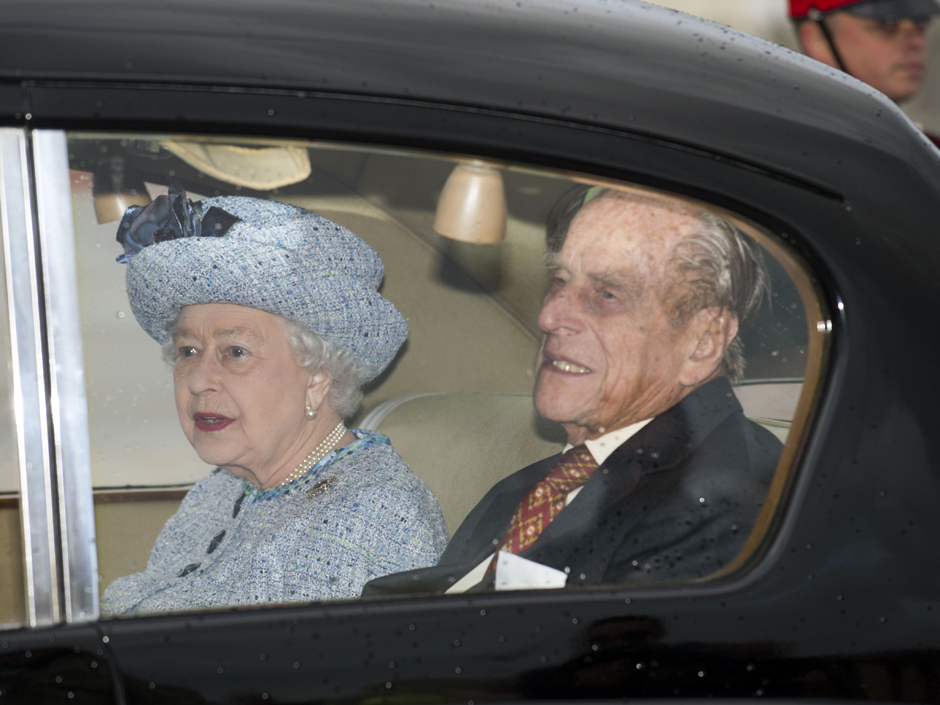 Syria's Assad says West wants to weaken Russia Syria's Assad says West wants to weaken Russia
27 March 2015
MOSCOW - Syrian President Bashar al-Assad has accused the West of trying to weaken Russia by turning Ukraine into a puppet state, a tactic he said had also been used against his own country.
"I keep coming back to the fact that there is a connection between the Syrian crisis and what is happening in Ukraine," he told Russian government newspaper Rossiyskaya Gazeta in an interview, excerpts of which were published on Friday.
"Firstly because both countries are important for Russia, and secondly because the goal in both cases is to weaken Russia and create a puppet state."
The United States and the European Union have imposed economic sanctions on Russia over its role in the crisis in Ukraine.
Russia, a long-standing ally of Assad, denies sending troops and weapons to support separatists fighting government forces in east Ukraine and says Western powers helped orchestrate the overthrow of a Moscow-backed Ukrainian president last year.
Asked about a second round of meetings between the rival Syrian sides in Moscow on April 6-9, which Assad will not attend, the president said those taking part should not lose sight of the main goal, clearly meaning restoring peace.
Little progress was made at the first round of meetings in Moscow in January. Many Syrian opposition figures shunned the January talks, saying they would appear only at meetings that led to Assad's removal from power.
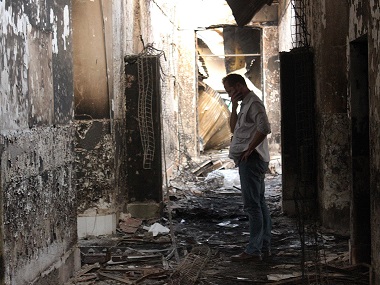 Saudi Arabia, allies launch air strikes in Yemen, Iran condemns assault Saudi Arabia, allies launch air strikes in Yemen, Iran condemns assault
26 March 2015
Saudi Arabia and Gulf region allies launched military operations including air strikes in Yemen on Thursday, officials said, to counter Iran-allied forces besieging the southern city of Aden where the US-backed Yemeni president had taken refuge.
Gulf broadcaster al-Arabiya TV reported that the kingdom was contributing as many as 150,000 troops and 100 warplanes to the operations and that Egypt, Jordan, Sudan and Pakistan were ready to take part in a ground offensive in Yemen.
At least 13 civilians were killed early in the air strikes, a civil defence source said. "Thirteen civilians, including women and children, were killed in the Saudi raids overnight," the source said. Witnesses said residents were helping civil defence officials to search for any more victims under the rubble of seven houses damaged in the raids.
The Iranian foreign ministry condemned on the military operation by Saudi Arabia andits Gulf Arab allies in Yemen, state television reported. Iran denies providing money and training to the Shi'ite Houthi militia in Yemen, as claimed by some Western and Yemeni officials.
There was no immediate confirmation of those figures from Riyadh. Al-Arabiya also said planes from Egypt, Morocco, Jordan, Sudan, Kuwait, the United Arab Emirates, Qatar and Bahrain were taking part in the operation.
A widening Yemen conflict could pose risks for global oil supplies, and Brent crude oil prices shot up nearly 6% soon after the operation began.
Unidentified warplanes had earlier launched air strikes on the main airport in the Yemeni capital, Sanaa, and its al Dulaimi military airbase, residents said.
That came soon after Saudi Arabia's ambassador in Washington, Adel al-Jubeir, announced the operation.
"We will do whatever it takes in order to protect the legitimate government of Yemen from falling," Jubeir told a news conference.
Yemen's slide towards civil war has made it a crucial front in mostly Sunni Saudi Arabia's rivalry with Shi'ite Iran, which Riyadh accuses of stirring up sectarian strife throughout the region and in Yemen with its support for the Houthis.
The crisis now risks spiralling into a proxy war with Iran backing the Houthis, and Saudi Arabia and the other regional Sunni Muslim monarchies supporting Yemeni President Abd-Rabbu Mansour Hadi.
Fighting has spread across the Arabian peninsula country since last September, when the Houthis seized Sanaa and advanced into Sunni Muslim areas, forcing Hadi out of the capital.
Al Qaeda branch
Jubeir said the assaults had been launched in response to a direct request by Hadi, who supported Washington's campaign of deadly drone strikes on a powerful al Qaeda branch based in Yemen. He has been holed up in Aden with loyalist forces since he fled Sanaa in February.
Hadi remains in his base in Aden and was "in high spirits",one of his aides said after the operation began.
A senior leader of Yemen's Houthi movement said the Saudi air strikes amounted to aggression against his country and warned they would set off a "wide war" in the region.
Houthi-run al-Masirah television reported that the Saudi-led air strikes had hit a residential neighbourhood north of Sanaa and caused dozens of casualties. It also urged medical personnel to report to hospitals in Sanaa immediately.
No independent verification of any casualties was immediately possible.
The White House said in a statement late on Wednesday the United States supported the operation, led by the Arab Gulf Cooperation Council countries, and that President Barack Obama had authorised US "logistical and intelligence support".
Although the news sparked jitters in the oil market, Asian importers said they were not immediately worried about supply disruptions.
Most oil tankers from Arab producers such as Saudi Arabia, the United Arab Emirates, Kuwait and Iraq have to pass Yemen's coastlines via the narrow Gulf of Aden in order to get through the Red Sea and Suez Canal to Europe.
The 40 km (25 mile)-wide strait between Yemen and Djibouti and the Strait of Hormuz between the Arabian peninsula and Iran are both considered chokepoints to global oil supplies by the US Energy Information Administration.
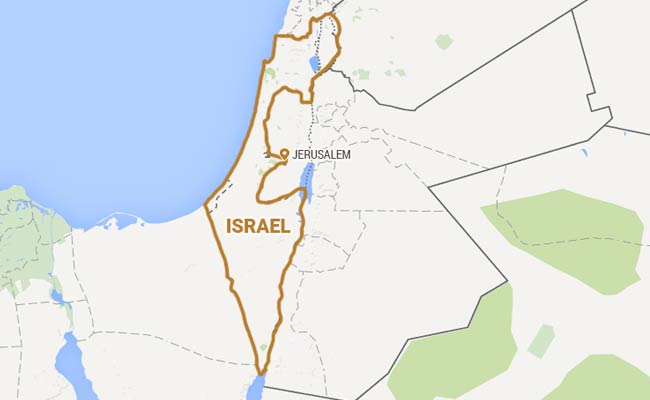 Philippine President Aquino Attempts to Quell Criticism Over Botched Raid Philippine President Aquino Attempts to Quell Criticism Over Botched Raid
26 March 2015
MANILA—Philippine President Benigno Aquino accepted responsibility for the deaths of 44 policemen in a bungled January raid and pleaded for understanding Thursday, as he sought to move beyond two months of political crisis that has gripped his administration.
But Mr. Aquino ignored calls for him to apologize, repeating his position the tragedy resulted from subordinates deviating from the “flawless” mission plan he had planned.
“I hope you can try to put yourself in my position…Yes, I’m president, but I’m also human,” Mr. Aquino said.
Addressing a police cadets’ graduation ceremony in Cavite, south of Manila, Mr. Aquino said this would be the last time he would discuss the raid debacle.
A Senate report into the Jan. 25 incident last week blamed Mr. Aquino for bypassing the chain of command by allowing a suspended police chief to manage the mission to kill or capture a most-wanted terror suspect on the southern island of Mindanao. This was an “unlawful” act, the report said, for which the president must “bear responsibility.”
Mr. Aquino’s approval ratings have taken a beating since the raid. Polling service Pulse Asia said this week 38% of people approve of his performance, down from 59% in November, while four-fifths of Filipinos said Mr. Aquino’s efforts to explain the raid’s disastrous outcome had been insufficient.
Meanwhile, demonstrations have been held demanding Mr. Aquino resign.
Political commentator Ramon Casiple said Mr. Aquino fell short in damage control with his speech Thursday.
“His agenda was to try to regain the goodwill that has been lost, and stop the downward trend in his popularity,” Mr. Casiple said. “But he didn’t apologize, and he didn’t say anything people hadn’t heard already.”
Shortly after the raid, Manila swirled with rumors of a plot to oust Mr. Aquino by coup d’état, and the president has been forced to dismiss as “gossip” reports that he collapsed last week due to the strain of dealing with the fallout from the disaster.
But Mr. Aquino delivered a confident performance Thursday, reminding people of the achievements of his presidency. Under the Aquino administration, the country’s economic growth has improved and government corruption has been reduced. Many Filipinos still approve of the president’s overall performance, Mr. Casiple said, even if he disappointed many with the way he handled the raid and its aftermath.
Meanwhile, congressional support for the peace deal Mr. Aquino spent years brokering with Muslim rebels in Mindanao has collapsed in the wake of the botched raid, in which the rebels clashed with the policemen.
Muslim rebel leaders contend they weren’t at fault because they hadn’t been forewarned of the raid, and rebels mistook the police for enemy intruders.
On Thursday, Sen. Joseph Victor Ejercito dismissed their position as “ridiculous,” and accused the rebels of perpetrating a “deadly massacre” of government officers.
Rebuilding support for the deal among lawmakers would be a major challenge, Mr. Casiple said, despite Mr. Aquino’s attempt to quash the controversy around his role.
|



